#ultimately hurting both aang and katara’s character development
Explore tagged Tumblr posts
Text
Let's Talk About How Book 3 Ruined Aang
If you've seen any of my prior ATLA posts, you know that I don't hate Aang. In fact, I quite liked him in Books 1 and 2. He was flawed, as all characters should be, but the show didn't shy away from those flaws or justify them. He was called out for burning Katara and rushing his firebending, Sokka and Katara were rightfully upset when he hid Hakoda's letter, he willingly owns up to the fact that his actions helped drive Toph away, and his entire arc after losing Appa and finding hope again in The Serpent's Path was beautifully done.
(Hell, even in The Great Divide Katara says what Aang did was wrong and he agrees. It's played for comedy, but the show still makes the effort to point out that what he did wasn't the right thing to do. You're just meant to understand that he was fed up and acted off of that)
Those flaws and mistakes were addressed and improved upon and helped Aang to grow as a character.
But for some reason, that aspect of Aang's character was completely flipped in Book 3.
The best examples of this are in both TDBS and EIP. Both the show and the fandom are too quick to brush off that Aang kissed Katara twice without her consent, one of which after she explicitly said she was confused about her feelings.
(And yes, she is angry in response and Aang calls himself an idiot. But after this, it isn't really addressed. They go on like nothing happened for the rest of the episode. Aang's lamentation comes from screwing things up with her romantically, not that he violated boundaries)
The show never really addressed why what he did was wrong. Not only because he wasn't given consent, but also because both times he isn't thinking about what Katara wants. In both instances, Aang is only thinking about himself and his feelings. This is something that persists through a lot of the third book. And by Sozin's Comet it ultimately ruins any character development he had built up in the second book.
One thing I feel was completely disregarded was the concept of having to let go of Katara in order to master the Avatar State.
For me, the implication wasn't that he had to give up love or happiness necessarily. He was emotionally attached to and reliant on Katara, to the point where she was needed to stop him from hurting everyone around him and himself. This is obviously detrimental to his functionality as the Avatar. And the point of him "letting her go" wasn't that he had to stop caring about her, it was that his emotional dependency on her was stopping him from being the Avatar he needed to be and that was what needed to be fixed. I don't even think it's about the Avatar State itself, it's about being able to keep your emotions and duty as the Avatar separate.
(If you look at Roku, he loved and had a wife. It wasn't his love for her that messed everything up, it was his attachment to Sozin. He wasn't able to let Sozin go and not only did he lose his life for it, the world suffered for it. It's the unhealthy attachments that seem to be detrimental, not love itself)
And Aang realizes that in the catacombs, which is how he's able to easily enter the Avatar State and seemingly control it. He let Katara go.
So then why does it seem like his attachment to Katara is not only stronger, but worse in mannerism? He liked Katara in Books 1 and 2- obviously- but he was never overly jealous of Jet or Haru. He only makes one harmless comment in Book 2 when Sokka suggests Katara kiss Jet.
But suddenly he's insanely jealous of Zuko (to the point of getting frustrated with Katara over it), off the basis of the actions of actors in a clearly misrepresentative play. Katara showed a lot more interest in Jet and Aang was completely fine with it.
(Speaking of EIP, Aang's reaction to being played by a woman was interesting. He wore a flower crown in The Cave of Two Lovers. He wove Katara a flower necklace. He wore Kyoshi's clothes and makeup and made a funny girl voice. He willingly responded to Twinkle Toes and had no issue being called that. And for some reason he's genuinely upset about being played by a woman? Aang in Books 1 and 2 would have laughed and enjoyed the show like Toph did. His aversion to feminity felt vastly out of character)
I guess my point is, why did that change? Why was Aang letting go of Katara suddenly irrelevant to the Avatar State? It felt like him letting go was supposed to be a major part of his development. Why did that stop?
Myself and many others have talked about The Southern Raiders. The jist of my thought process about it is his assumption that he knew what was best for Katara. And the episode doesn't really call out why he was wrong. Maybe sparing Yon Rha was better for Katara, maybe it wasn't (the only one who's allowed to make that choice is her). Pushing forgiveness? That was wrong. But the episode has Zuko say that Aang was right when the course of action Katara took wasn't what Aang suggested.
Katara's lesson here was that killing him wouldn't bring back her mother or mend the pain she was going through and that Yon Rha wasn't worth the effort. That's what she realizes. Not that she needed to embrace forgiveness. How could she ever forgive that? The episode saying Aang was right wasn't true. Yes she forgives Zuko, but that wasn't what Aang was talking about. He was specifically talking about Yon Rha.
And that was wrong. Aang can choose the path of forgiveness, that's fine. That's his choice. But dismissing Katara's trauma in favor of his morals and upbringing wasn't okay.
I know it sounds like this is just bashing Kataang. But it's not simply because I don't like Kataang, in my opinion it brings down Aang's character too, not just Katara's. But let's steer away from Kataang and Katara for a minute.
The one thing that solidifies Aang's character being ruined in Book 3 for me is the fact that he- at the end of the story- does the same thing he did in the beginning.
He runs away when things get hard.
Aang couldn't make the choice between his duty and his morals. So he ran. Maybe it wasn't intentional, but subconsciously he wanted an out. And this is really disappointing when one of the things he was firm about in Book 2 was not running anymore. His character went backwards here and that's not even getting into the real issue in Sozin's Comet.
There's been contention about the Lion Turtle intervention. For many- including myself- it's very deus ex machina to save Aang from having to make a hard decision. And that in turn doesn't reflect kindly on his character.
Everyone- Sokka, Zuko, Roku, Kyoshi, Kuruk, and Yangchen (who was another Airbender and was raised with the same beliefs he was and would understand which was the whole point of him talking to her)- told him he had to kill Ozai. They all told him it was the only way. And he refused to listen to any of them, rotating through his past lives until he was given the answer he wanted.
And before anyone says that I'm bashing Aang for following his culture, I'm not. Ending the war peacefully, in my opinion, wasn't the problem. In a way, I think it allowed the world to heal properly. However, that doesn't make up for the fact that Aang refused to make a choice and face the consequences of that choice. Instead, he's given an out at the very last second.
Even if he couldn't kill Ozai and someone else had to deliver the final blow, that would have been better than the Lion Turtle showing up and giving him a power no one's ever had before. It would have been a good compromise, he doesn't have to have blood directly on his hands but what needs to be done needs to still get done. It would also show that being the Avatar isn't a burden he has to bear alone. That when things get hard, he can't run away but he can rely on the people closest to him to help him through hard decisions.
All these issues aren't necessarily a problem with Aang. Aang prior to Book 3 didn't have most of these problems. This is a problem with the way he was handled
#aang critical#anti aang#tagging just in case#i don't want aang stans accusing me of cross tagging#it's really not anti aang tho#long post#anti bryke#this is their fault#look how they massacred my boy#anti kataang#katara deserved better#she's not the focus here#but i thought I'd add that there#character analysis#atla critical#anti book 3#which is kind of an exaggeration#because a lot of book 3 is great#it's just most of the latter half
335 notes
·
View notes
Note
Hey does everyone remember when Aang physically hurt Katara via burning her due to his own negligence with fire because he didn't listen at all to her concerns? But all of Katara's concerns were her being worried for him getting hurt and not herself, and then he hurts her badly, this never gets addressed again in the show, but I remember this vividly.
i actually like this scene on its own.
aang burning katara is a good character building moment because it's a brutal reminder of his own capacity for destruction. he needs to understand that his reckless actions can have horrific repercussions in order to fully realize the weight of his responsibility as both a firebender and the avatar, and it makes the moment where he uses zhao's recklessness against him more impactful. it also sets up the "water = life, fire = death" dichotomy that's part of katara's arc on viewing the world in binaries, which will later be broken down in book 3.
but ultimately the incident is still of greater significance to aang, and he's the one to bring it up in the guru and western air temple episodes, telling both guru pathik and zuko about his guilt over burning katara and his refusal to firebend ever again. this experience is also what leads him to accept zuko as his firebending teacher, and then finally forgive himself when he learns the true meaning of firebending. for the most part, it's a well-sustained arc and one of the few narratives aang has that is actually brought to completion.
do i wish that katara and aang had actually talked about his actions beyond this episode? yes. do i wish the aftermath had been focused a little more on katara instead of showcasing the impact of her physical injuries mostly through aang's continued self-flagellation? yes. but as a one-off incident contained to a single episode, i don't mind it.
what i do mind, however, is that this is not the last time the show is going to use katara as a lynchpin for aang's character development.
in the book 2 premiere, katara is turned into a pawn to propel aang into the avatar state. in the guru, her imprisonment is the reason that aang chooses to go back to ba sing se instead of unlocking his chakras. that is three separate times now that katara has been damselled in order to facilitate key turning points in aang's narrative, but not once does the same apply in reverse. there is never a moment where aang is the only one put in danger solely to drive katara's arc, the way she is in his. the closest we get is katara bringing aang back to life, but even then his death is still the result of his own choices and more integral to his storyline than hers.
now, compare this to the final agni kai.
at first glance, katara being put in danger just to complete zuko's redemption looks like the same tired trope, and had the scene ended at his sacrifice, it would be. but crucially, it's katara who continues the fight. katara who defeats the scion of fire nation destruction at the height of her power. katara who saves zuko just as he saved her.
in proving herself a master waterbender powerful enough to defeat azula and save someone she loves - someone who sacrificed themselves for her - from fire nation aggression, katara brings her own arc full circle. it is in triumphing over azula by saving each other that zuko and katara become the people they were always meant to be, and so their individual arcs are brought to their narrative culmination through bookending the other. the final agni kai works where the kat.aang moments fall short because it is of equal significance to both zuko and katara's narratives.
obviously, this is not to say that it's bad for certain characters to exist just to drive another character's arc. it's inevitable that some will be written solely to fulfill that purpose because a story only has so much narrative space, and it usually can't - and shouldn't - be divided equally amongst every single character.
but if we're talking about two main characters who end up in a lifelong romantic relationship, and it's the female character being repeatedly damselled to drive the male character's storyline within an already imbalanced dynamic... perhaps it's time to rethink a few things.
287 notes
·
View notes
Note
Was watching sneezys video on K/A v Z/K and wondered slightly off tangent why you (and ill admit that I) never took redcrackle as a red herring pairing? Was it just preference for enemies to lovers or ? Is it because they have meat to them that seems it actually might resolve in a romantic fashion (if xyz reasons and behind the scenes wasn't in the way)?
Prt 2 of the sneezy x rc because to clarify i always wondered why being like they are (not having the same values and always having to leave each other instead of coming together) didn't make you see it as a k/a or m/z?
So I actually answered an ask similar to this quite some time ago, though the framing was a little different--I was asked if I agreed that red crackle was maiko 'done better' and my answer was kinda wordy but I think it boils down to this:
I think a big part of it is that Carmen Sandiego started out giving you the sense that these two characters genuinely loved and cared for one another in the 'childhood friends' portion of their past. ... The thing about maiko is... it was entirely one-sided from the very beginning. Shippers will sometimes try to sell you on them being 'childhood sweethearts', but they really weren't--Mai had a crush on Zuko, to which he was oblivious,...
...
Gray and Carmen, on the other hand, were established as rivals who quickly became best friends over the course of their year in school together. They clearly cared deeply for one another, and Gray was just as upset as she was when Carmen failed their final exams ... They didn't see each other for three years (incidentally, the same length of time between Zuko's banishment and meeting Mai again), at which point they were enemies, and yet Gray was clearly upset at the prospect of having to hurt her.
...
Carmen and Gray both grew as characters separately and together--Mai never grew at all, being the exact same person in her last appearance as she was in her first, with the same beliefs and no indication that anything about her worldview had changed, and this is especially egregious when she was paired as a love interest with the character who arguably had the most dynamic growth throughout the series.
Ultimately, my problems with maiko (and kataang) were never that the characters involved had diverging morals or goals, or that they spent significant portions of time separated--those are things that could make for juicy romantic development if given adequate time and page- or screen-space to grow and add to the tension between them until it eventually boils over. The real issue is that neither of these ships actually sold me on the mutual development of their romantic feelings or relationships.
And actually, maiko and kataang both share the problem of one-sided interest being established and nothing being done to make the journey from unrequited to requited love seem believable for the characters who did not originally share these feelings. Aang's crush on Katara is abundantly clear from the beginning of the show, where he hatches from his ice egg and imprints on the first girl he's ever seen in his life like a baby duckling. Katara is entirely oblivious to his interest in her even when he tries to act upon it (take the Cave of Two Lovers, for example, where they kiss to light their way forward and Aang seems flustered and clearly wants to talk about what just happened, but Katara seems to feel nothing except relief and excitement that their plan worked and she can now find the way out), until quite late in the series when, after Aang rather aggressively projects his own feelings onto her, she suddenly seems to reciprocate. Likewise, it is established in a flashback that Mai had a crush on Zuko, but there's zero indication given that he ever noticed her feelings, much less returned them (which makes sense given that he was ten years old at the time and she was his sister's friend and helped to torment him), and no care or attention is given at all to his feelings towards her in the present until suddenly they are dating at the start of book 3.
Then with maiko you have the added issue of nothing ever being done to resolve their stark differences in worldview. At the end of The Boiling Rock, Mai turns on Azula to save 'the jerk who dumped [her]', not because she suddenly realized she was wrong and the Fire Nation needed to change. And at the end of the show you have evidence that Zuko had completely forgotten about her (despite the fact that he could quite possibly have thought she died defying Azula to save his life, and never once seems to think about her again afterwards), and they just... get back together. Because reasons, I guess. Because Mai says 'I guess I kind of like you' and that's supposed to be a good reason for two people to get back together despite none of the things that made their relationship untenable in the first place having changed.
On the other hand, Gray goes through an entire arc on the show after getting his memories back where he comes to realize that working with VILE was not worth losing Carmen, and it wasn't worth Carmen losing herself. And while you could certainly make the argument that at the end of the day he was still saving Carmen because he loved her (however you interpret that love; I personally view it as romantic but obviously the show did not choose to make any specific Carmen-centric ship canon in the end), not because his own moral center had shifted away from the villainous, I would counter that taking a stand against VILE was a clear indication that he had discovered something that was worth more to him than his criminal inclinations. And there was actually a relationship there to serve as a foundation, plus the obvious potential for him to join Team Red in the future and use his skills for good rather than evil.
I have always been a proponent of the redemptive power of love, incidentally. I think that one of the most beautiful forms of redemption is choosing to change because of love, because the act of falling in love and recognizing that love is inherently transformative. Because love changes us and makes us want to be better versions of ourselves. (Or sometimes worse, I do love a good corruption arc too but that's a different topic.)
But the thing is that I ultimately need to believe that love exists in order to buy its power to redeem. I never saw any reason to believe Mai and Zuko were in love beyond very surface-level indications of attraction and an otherwise shallow relationship where they never seem to connect on any deeper level--and not for lack of trying on Zuko's part, here is an excellent essay about their lack of emotional intimacy. Carmen and Gray, meanwhile, had a close friendship and deep emotional bond which persisted through Gray's forced amnesia and that changed him enough that he let Carmen go and then took steps to get her away from VILE after they captured and brainwashed her, branding himself a traitor and risking imprisonment or death to do so.
You can't just skip the part where the story shows us how and why a couple are in love or might have fallen in love and then try to convince me that they are and this isolated moment of sacrifice embodies it. You've gotta put in the work! And atla ultimately fails to do so for either of their main canon ships. (Zutara on the other hand..... but that's another essay. Cough.)
#atla#carmen sandiego#red crackle#anti maiko#maiko salt#kataang salt#salt for ts#long post#kitty meta#Anonymous#asked
37 notes
·
View notes
Text
some other stuff from the original outline of Avatar The Last Airbender’s plot that’s kind of interesting:
- Zuko’s character development is ultimately the same, indicating that his character trajectory was always the same, but it seems to have functioned differently; he would have come to sympathize with Fire Nation citizens driven to poverty by the war, and during the early bits of Season 3 at that. This is a contrast to how Zuko’s season 2 development is all about him learning the same lessons, through people in the Earth Kingdom victimized by the war, which i think most would agree is a better reason for him to turn against the whole cause of the war; feeling more bad for your countrymen, rather than those hurt BY your countrymen, is fundamentally more selfish and less worldly.
- There was no original idea for anyone ending up with anyone, romantically. There were no endgame ships. I think in some respects it might have been more useful to go this route, much as i love Katara and Aang winding up together, since leaving it open ended might ironically have headed off some shipping wars. (After all, a definitive ending didn’t curtail any ‘it SHOULD have happened this way!!’ complaints.)
- The fate of the Air Nomads was more open-ended. At the end of the series, Aang would have journeyed on his own to find surviving Air Nomads that he believed survived in remote, unexplored parts of the world, and honestly i REALLY wish they’d done this, since its the most simple explanation for how the Air Nomads could be reborn in some way or another.
- Toph and Azula were both boys (named Toph and Azul); with Azul seeming to have a MUCH smaller role in the story, only being mentioned a few times as a strict antagonist, and Toph being a love interest for Katara who would inspire Aang to be tougher to stand up to him and look cooler to Katara. This is particularly interesting since the Toph we got doesn’t have the massive ego the beta product Toph was implied to have; yes, she’s proud of her power, but its largely treated in-series as a running gag at worst, and she’s a lot more spiritual and wise to the point that her wisdom is more a pat of her character.
- Iroh was ultimately an antagonist here! He was meant to teach Zuko bad firebending on purpose, so that Zuko would be unable to teach Aang properly. Aang would have learned Firebending on the spot during his battle with Ozai, observing his movements and how he fought. The Sun Warriors did not exist in any form. Ultimately i think the series did better on this one, since we got more of an interesting ethical issue with the Fire Nation practicing a corrupted, inherently flawed form of Firebending that nicely illustrates the error of their imperialistic philosophy. Also Iroh being a bad guy all along is WEIRD, I do not like it
- It’s also pretty likely, given the elements mentioned with Iroh, that the show’s use of him as a father substitute, loving parent and wise guru of sorts were not present in this original idea. It’s likely that Iroh was originally going to be a much more morally ambiguous figure and probably not the Zuko’s role model we ultimately did get.
- Aang did not bond with the Ocean Spirit to save the North, instead he just flooded the navy with water tornadoes, driving them away.
- Wan Shi Tong and his library don’t appear to exist in any form here. Instead the plan was one belonging to the Emperor of the Earth Kingdom (an early form of King Kuei, i think) Spirits as a whole seem to have much less of a role in this version of the series.
- Appa was captured by Zuko at the beginning of season 2 and given to Ozai as a present, thus forcing the team to travel on foot. This goes to show that the original plot arc of Appa going missing was present the whole time. Apparently nothing bad happened to Appa since I infer he showed up again later.
- Zuko doesn’t seem to do a lot in season 2 otherwise??
- Energybending is briefly referred to as a special technique only the Avatar can perform. This means Ozai’s method of defeat was always on the table; at no point was he to be killed, or otherwise defeated in a more conventional manner, at least from the POV of someone who usually sees a series where ‘slay the villain’ is the default end.
- Zuko joins Team Avatar significantly earlier than he did in canon; he apparently was intended to join up near the beginning of season 3, but given that he cannot teach Aang Firebending, a lot of elements core to his dynamic are not present.
- Zuko and Katara don’t appear to have any real dynamic or are mentioned to interact with each other much in this pilot series of events, if at all. This casts some doubt on the assertations by cast, or those who CLAIM that cast said it, that they were meant to get together at some point. The only relationships ever brought up are Katara with Aang (with him having feelings for her) and Toph (with Katara having a rush on Early Boy Toph).
- Toph’s original concept has shown up a few times over the franchise as a whole; Roku’s Earthbending mentor is explicitly based on Toph’s original personality and design, and other elements of him was reworked into Bolin in Legend Of Korra.
- at the end, as mentioned, Zuko reigns as Fire Lord (as per what they ultimately went with), Katara and Sokka go home to rebuild, and Aang journeys off on his own to find the Air Nomads. (I don’t recall if they specify what Toph does or not.) All of these are things that make for good endings, and I think they can be logically inferred as what they all most likely did after the events of the series, and I’d be lying if I said i didn’t prefer these in some way. A good, romantic ending is great and sweet, but again these all feel like good responses to the war ending.
#atla#avatar the last airbender#for the most part i think the pilot had some interesting aspects to it overall#and a lot of elements that would be great additions to fanfic ideas in general#but as a whole the series we got seems a lot more satisfying than what it might have been#a lot of these elements seem a bit lacking or even more black and white mentality
31 notes
·
View notes
Note
What your opinion on the Agni Kai was better then aang’s fight with ozai
I want to first say that “better” is a completely subjective statement. Both the final Agni Kai and Aang’s battle with Ozai have huge importance thematically, but are also demonstrative of different aspects of A:tLA, so comparing them in an attempt to determine the “better” battle is really an injustice to the show imo. That said, the final Agni Kai is certainly the more popular of the two big battles, and honestly I can break down its popularity into three main points. People tend to favor the final Agni Kai because:
They see the final Agni Kai as the reason Z.utara should have been canon (no, this is not the same as seeing the battle as crucial to Z.utara’s development; I mean they full-on think that the final Agni Kai matters largely if not entirely because of the brief ‘Z.utara’ moment.)
They recognize the significance of the Agni Kai being framed as a tragedy (specifically regarding Azula).
Their lack of understanding regarding Aang’s arc (or, to be kinder, their personal disinterest in Aang) prevents them from fully appreciating his battle with Ozai.
There are a few other reasons the final Agni Kai tends to be favored (e.g. it’s a much faster-paced battle action-wise; Aang’s battle with Ozai is over twice as long and because of how the show was structured is broken up into several sections and thus feels even longer), but I think those are the main three. So let’s take them one at a time!
First, I have to start with the obvious:
People favor the final Agni Kai because they interpret it as their holy grail of why Z.utara should have been canon.
Firstly, I am not getting into the K@taang vs Z.utara ship wars. I don’t have the time or the energy lmao. But there is a huge difference between shipping Z.utara based on the content provided in the show (because y’all know I love me some Zut@raang) compared to somehow thinking that Zuko and Katara were both ready to be and should have gotten together at the end of the series. In short, Z.utara would not have worked in canon based on where the series stood by the finale, and that’s okay! That fact does not negate the appeal of Z.utara nor does it mean Z.utara shippers should not be allowed to interpret the final Agni Kai as involving Z.utara content (they absolutely can and should! we love to see that!). But the final Agni Kai was not some secret sign that Z.utara was meant to be canon, and people who interpret it as such are sorely missing the point of the battle.
Here are a few metas discussing the final Agni Kai in regards to Z.utara’s importance within canon A:tLA, if you’d like to read some analysis going more in-depth than I intend to. My thoughts regarding Z.utara and the final Agni Kai are pretty simple:
Zuko catching/attempting to redirect the lightning aimed at Katara was not because he was in love with her. For him to sacrifice himself because he was “in love with her” would entirely undermine his redemption arc, which is learning to earn forgiveness and accept unconditional love from his family (both Iroh and the Gaang), not because of romantic interest. (Again, this does not mean someone shouldn’t ship Z.utara; if that’s what you’re taking away from this post, then you might as well stop reading, because I assure you that’s not even close to the point here.)

Katara is set up as Azula’s primary foil (e.g. by and large her relationship in canon with Zuko is aimed as a surrogate sibling); her saving Zuko parallels Azula’s attempts on his life (though her most important moment as Azula’s foil is arguably bringing Aang back to life after Azula kills him, but that’s a subject for another time lol), and Zuko catching the lightning for Katara demonstrates him saving the sister he can save versus Azula, the sister he cannot save (hence her breakdown at the end of the battle while Katara walks away largely unharmed; Zuko’s decision is also a direct parallel to him siding with Azula in “Crossroads of Destiny”, having first chosen the sister who harms him over Katara, the sister who ultimately heals him).
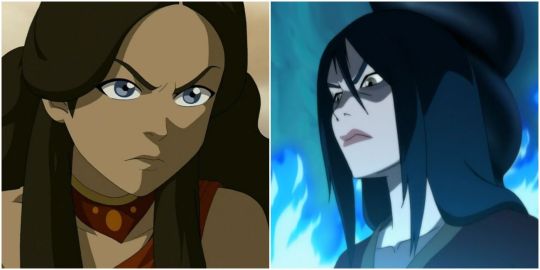
The significance of Zuko catching/attempting to redirect the lightning aimed at Katara is not because it was Katara he was saving; the viewer sees Zuko’s decision and recognizes that he would have done so for anyone. Anyone in the Gaang, plus Mai and Iroh, and possibly even Ty Lee (hell, he’d probably have taken the bolt for Appa and Momo). Zuko’s redemption arc is sealed by his selflessness, his willingness to sacrifice himself for the sake of someone else. While the moment is especially powerful because of Katara’s position as a foil to Azula, it is not the Z.utara holy grail I’ve seen it portrayed to be.
To be honest, the interpretation of the Agni Kai as some big Z.utara moment is both superficial and a massive disservice to Azula and the completion of her arc, which is the focal point of most if not all of the battle, and also entirely undermines the power of Zuko’s redemption (as I discussed). So moving on to the next point!
People favor the final Agni Kai because they recognize its importance to Azula and how the key element of the battle’s emotional weight is its framing as a tragic, heartbreaking moment.
I rewatched both the final Agni Kai and Aang’s battle with Ozai before I wrote this, and I had to try so hard to not cry at the end when Azula breaks down, sobbing openly for the first time in the entire series. It is a powerful, devastating moment, and it is so heartbreaking because of how fitting it is for her. Does she deserve redemption? Absolutely. But in the context of the series and how A:tLA played out, rock bottom is where Azula needs to be, and the audience recognizing that fact is what makes the scene so painful to watch (and also why you can’t take your eyes off the screen). For me, the power of the Agni Kai never came from Zuko’s sacrifice (although I understand why that part resonates with some people more); instead, it was always about Azula’s downfall, her descent, the straw the broke the camel’s back - whatever you want to call it. I’ll try to keep the essence of my feelings towards Azula and the Agni Kai and why this battle is preferred short:
Azula is a much more established antagonist than Ozai. We know from the beginning the Fire Lord is the big bad, but his presence in the show is relegated largely to flashbacks and to the second half of the final season. Azula is introduced in Book Two (technically she appears twice, I believe, in Book One, but she has no lines so I’m not counting those moments lol) and becomes the key antagonist throughout the final two books. The viewers admire her intelligence and strategic capabilities, appreciate her wit and ability to turn a person’s words around on them, and even feel sympathy and pity for her when her difficult relationship with her mother is revealed (in “The Beach”) and when Ozai’s conditional love is demonstrated to apply to her, too (“Sozin’s Comet Part 1: The Phoenix King”). Thus, the final Agni Kai has multitudes more emotional potency in terms of the antagonist, as Azula is more pitiable and developed than Ozai, so it’s understandable that feeling a greater connection to Azula might result in someone preferring the final Agni Kai over Aang’s battle with Ozai. (That said, I will be discussing more about the significance of Ozai as a character later.)

The tone of the Agni Kai is that of tragedy (verus the more action/intense battle of Aang vs Ozai). While the debate of drama vs action is largely related to personal preference, I think it’s worth noting that no other battle in A:tLA (that I can think of) has the slow, drawn-out, orchestral music that is present in the final Agni Kai. The viewers realize this battle may be about power on the surface, but in reality it is a painful, devastating moment about a family irreparably torn apart (at least in terms of the series run). For me, that has always been the captivating factor of the Agni Kai. The viewers mourn for Azula, who has lost herself. Yes, she did so partially in her quest for power, but more importantly in her search for love, as she did not have a support system in her life like her brother (Zuko always had Iroh), and the audience grieves for her. Her mother both feared her and was disgusted by her; her father loved no one (including her) and only valued her for what she could provide to him; she hurt her brother and her best friends to the point where they were forced to turn away from her; and her uncle, as far as what is shown, never extended a hand to her. Azula is a victim of abuse (though this does not excuse any of her actions; in fact, her role in A:tLA as a victim who was abandoned and lashes out before breaking down on the inside is just as important as Zuko’s role as a victim who was given support and was able to heal). Thus, to me, the power of the final Agni Kai is all from the tragic tone (hence why Azula’s heartbreaking end brings me close to tears every time).
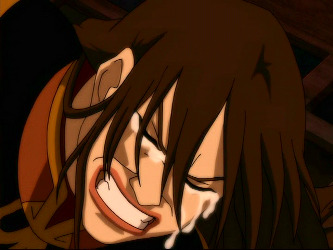
Bonus: The way Katara takes out Azula is incredibly clever and badass. (I don’t think I need to expand this one. We all love narrative foils!)
For some people, they prefer the final Agni Kai because of the emotional weight of the conclusion of Azula’s arc; that weight combined with the conclusion of Zuko’s redemption, in my opinion, are pretty valid reasons to deem the final Agni Kai their favorite battle of the series. That said, there is one other important factor to consider in the question of the final Agni Kai vs Aang’s battle with Ozai:
People prefer the final Agni Kai because they blatantly misunderstand and/or misinterpret Aang’s arc of reconciling his being both the Avatar and the last airbender, thus preventing them from fully understanding and appreciating the weight of his battle with Ozai.
This point is more complex than the two I discussed previously, so I’m going to break this one down further to help simplify it. Let’s start with the most obvious thing:
“The lion turtle and energybending were cop-outs!”
I cringe whenever I see this; imagine admitting to the entire fandom how blind you were to the extensive foreshadowing about the lion turtle and energybending. Downright embarrassing. There are so many metas out there explaining how the lion turtle and energybending were not cop-outs and how A:tLA did foreshadow their influence (some people need to admit they just didn’t watch the show tbh). I’ll try to provide a quick summary:
Chiblocking demonstrated how chi/energy and bending were intrinsically linked from Day. One. Moreover, it did so numerous times; trying to claim that blatant foreshadowing is not there is… well, kind of embarrassing.
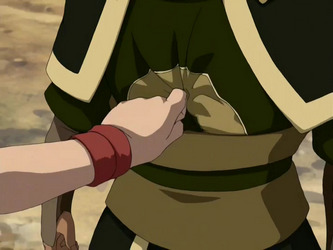
The lion turtle was foreshadowed in “The Library” (and moreover the lion turtle only appeared after Aang called out to the Spirit World; his meditation was an appropriate attempt to seek help from those wiser than him to resolve his dilemma, and thus his plea was answered).


If you’re gonna argue the lion turtle/energybending were convenient cop-outs, you better also critique how Suki conveniently was at the Boiling Rock/the ferry, Pakku conveniently had been arranged to marry Katara’s grandmother, Toph conveniently inventing metalbending, every other time a spirit showed up conveniently, etc. etc. etc. Don’t cherry-pick, hypocrites.
The lion turtle/energybending were not necessarily predictable, no, but they also were not meant to be. You’re not supposed to guess every detail of every finale of every show. So yes, the lion turtle/energybending were foreshadowed, and this foreshadowing done so in a way where after they were revealed it was intended to be an “oh my god, how did I not see that connection before?!” moment. (At least, so it was for me.)
Dismissing the lion turtle and energybending as a cop-out is an age-old, boring misinterpretation of Aang’s battle with Ozai, and by and large I think most of the fandom is tired of hearing it. Thus, if people don’t understand the lion turtle/energybending and their roles in the A:tLA finale, then they’re less likely to appreciate Aang’s battle with Ozai and therefore would prefer the final Agni Kai. Next common argument:
“Aang was able to re-enter the Avatar state because of a rock? Really? Another cop-out!”
Again, if you’re gonna criticize the rock, at least criticize every other plot device used in A:tLA. I mean come on. Some people will really just cherry-pick instances solely with Aang. How very convenient for them, huh?
But the fact of the matter is that the pointy rock is actually pretty important! No, it didn’t necessarily have to be a rock that allowed Aang to enter the Avatar state again, but it was necessary that the Avatar state was unblocked for him by a physical trigger. The Avatar state was removed from Aang by Azula’s lightning striking him (after he’d done the spiritual work to control it, too!), which is a physical block, thus requiring something to physically unblock it. By the end of Book Two, Aang is able to enter the Avatar state of his own accord (he successfully unlocked his chakras, after all) and had Azula not struck him in the back and killed him, he presumably would have been able to do so throughout Book Three. Did that physical item have to be a rock? Again, not necessarily, lmao, but where he and Ozai were fighting, well, there certainly were a lot of rocks, so it’s not like it didn’t make sense. (There’s a meta here that touches a bit on the necessity of the Aang needing the Avatar state physically unblocked, too.)
“Ozai was a stereotypical, boring villain! He was barely given any screen time!”
This isn’t entirely untrue. Everything viewers are told about Ozai is from other characters in the narrative; mostly Zuko, but also Azula and I’d argue Iroh, too. Ozai certainly was the big bad of the series, and little is provided regarding his personality beyond being power-hungry, racist, xenophobic, and abusive. But… that’s kind of the point. Ozai is written to have zero redeemable qualities. There is supposed to be zero sympathy for him. Hell, there’s arguably even zero reason for him to live on (which actually makes Aang’s decision to spare his life all the more powerful, but that’s for later). There’s one line in particular that really defines Ozai’s character to me:
“You’re [Aang is] weak, just like the rest of your people [the Air Nomads]! They did not deserve to exist in this world… in my [Ozai’s] world!”
Ozai is the epitome of fascism, imperialism, and a superiority complex if there ever was one in a cartoon. His words remind the audience that maybe he didn’t initiate the Air Nomad Genocide, but he continues to seek the same goal - obliteration of anyone he deems inferior (which is, well, every nation except his own). Aang’s battle with Ozai is literally a fight against fascism, and that’s a hell of a powerful metaphor. So while I understand leaning towards the Agni Kai in terms of familiarity with the antagonist (aka Azula), I do think some people gloss over Ozai too quickly. Yes, everyone knows that Ozai is a genocidal dictator, but I don’t think the implication of that position - especially what it means to Aang - really sinks in for everyone.
And now for the big one:
“Aang should have killed Ozai!”
If you are reading this and for some godforsaken reason think Aang should have killed Ozai, I beg of you: read these metas and analyses about Aang and his arc explaining exactly why that’s the wrong take. This point has been argued a million times over and the fact of the matter is that Aang choosing to spare Ozai’s life and thus uphold his beliefs as an Air Nomad is the ultimate triumph (a direct parallel to the Air Nomads being forced to fight back against the firebenders during Sozin’s attack and were thus not able to uphold their beliefs - the ultimate sacrifice). Furthermore, Aang choosing to spare Ozai’s life but take his bending is arguably a fate worse than death for Ozai. Ozai now lacks all of his power/prestige, will be forced to watch the son he despises rebuild his country, and any lingering supporters he may have can’t argue “oh well the Avatar had no reason to kill him!” because Aang didn’t kill him. He chose mercy. He proved himself better and stronger than Ozai could ever hope to be.
Furthermore, Aang staying true to his beliefs as an airbender is central to his character. The core belief of the Air Nomads was that all life was sacred (such was why they were all vegetarians). If he had killed Ozai, if he had been forced to betray his spiritual beliefs, then he would have completed the genocide of the Air Nomads that Sozin started a hundred years ago. Ozai’s death at Aang’s hands = the death of the airbenders’ culture. Full stop. How could he be expected to bring balance to the four nations if only three remained? Maybe this is just me, but the message of Aang being an airbender (the last airbender) and finding another way (e.g. energybending) to defeat Ozai in order to uphold the beliefs of his people is a much more powerful message than him having to kill Ozai (especially because no one else understood how important Aang’s spirituality was to him [not even the Gaang!]; Aang did what was right, even when the world insisted he was wrong).


(Sidenote: The previous Avatars did not tell Aang to kill Ozai. That’s right - not even Kyoshi. I believe she gave him this advice: “Only justice will bring peace.” Great news! Aang did exactly that. Why are some people still so pressed about it??)
Furthermore, if someone calls Aang’s beliefs and his decision not to kill Ozai childish (we’ve all seen those posts), I’m giving you permission to deck them, because so much of the roots of the Air Nomads’ spirituality is rooted in Buddhism, and like,, we know westerners struggle to comprehend any narrative that isn’t our own, but the dismissal of Aang’s beliefs without making the connection that they’re also dismissing the beliefs of many, many real people? Yeah, please sock those assholes in the jaw. Give them the finger. Glare at them. Whatever works for you. Those are the people with the most superficial opinions on A:tLA, and to be honest, it really shows. Please: make an effort to understand the eastern narratives at work within A:tLA. If you don’t, there are so many things you will miss out on, and you’ll also just look like a prick.
For me, Aang’s battle with Ozai is so powerful (and my favorite) because of the ending and its importance to Aang:
“I’m not gonna end it like this.”
Aang chooses mercy by taking Ozai’s bending instead of killing him.
Aang chooses to uphold the beliefs of his people and guarantee the Air Nomads live on in him.
Aang proves his soul is unbendable.
Aang enters and controls the Avatar of his own accord (not induced by trauma or a spirit).
Aang reconciles his being the Avatar with being the last airbender.
Aang is finally at peace with himself and the world around him.
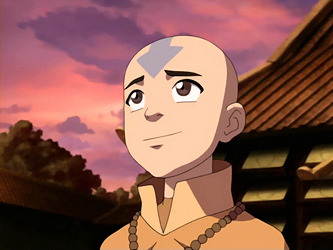
In short, if a person doesn’t understand Aang and his character, then the significance of his final battle with Ozai will largely be lost, and thus it makes sense that they would gravitate more to the Agni Kai (which is arguably a less nuanced battle, as Azula’s position as a victim of abuse and Zuko’s tale of redemption are not exclusive to either western or eastern narratives, while Aang’s arc is largely more eastern in nature and thus something less familiar to western audiences).
I have no doubt that my personal bias influences my admiration of the final battle with Ozai, as Aang is my favorite character and his narrative is easily the most powerful to me (he is the sole survivor of genocide who still chooses to seek kindness in life instead of revenge), but regardless I’d argue the sheer thematic weight of Aang’s battle with Ozai outweighs that of the Agni Kai any day (although, to be fair, they are presenting different subjects, so take my feelings there with a grain of salt).
The Agni Kai is a tragedy. It is devastating. It makes you cry. Aang’s battle with Ozai is a triumph. It is hope. It makes you take a deep breath and look to tomorrow with a brave smile. And that is why it is the battle that concludes the series.
TL;DR - Both are fantastic battles in their own merit, but Aang’s battle with Ozai is underappreciated because of the fandom’s incomplete grasp on Aang’s arc and character while the final Agni Kai is often appreciated/hyped up for the wrong (*cough* shipping *cough*) reasons.
#IM GONNA ADD A LINE BREAK IN A HOT MINUTE IM ON MOBILE#amy answers#aang#atla#avatar the last airbender#azula#zuko#katara#ozai#final agni kai#atla meta#aang vs ozai#energybending#lion turtle#anon#air nomad genocide#air nomads#avatar the legend of aang#amy analyzes
177 notes
·
View notes
Text
Kataang: An In Depth Analysis
Hello again! I apologise for the inactivity. It’s been a busy month as far as school goes for me, so let’s just say I’m a lot busier solving chem equations and working on stuff for AP art. Don’t get me wrong though! These analysis and essay format posts are my favorite and I wish I could do them more often! Seriously, it’s the only thing that keeps me wanting to write! I’ve also decided that I’m going to make these little intro paragraphs separate to the actual essay, because while I’m at this, why not kill two birds with one stone and practice writing essays for my actual AP Lang. class? I mean I’m obviously not gonna turn them in or show them to my teacher, (unless this gets 1000 notes or more, in which case I’ll show this to her ;)) but this is a good way for me to work on formatting a thesis and developing arguments, all while doing and talking about something I love! Speaking of which, let’s dive right on into today’s topic; the much debated, and thoroughly analyzed ship: Kataang. (Buckle your seatbelts hotmen, because this is gonna be one hell of a sky bison ride) I got inspired by a creator on Tik Tok that I follow, Amanda Castrillo, to write this. Her username is @theamanda2d and I highly recommend you go check her out and give her a follow. A lot of the arguments in this are my own, but I also sourced a lot of information and arguments for Kataang from her series “a case for Kataang”, which I highly recommend you go watch. I’ll insert her quotes directly so you know exactly where her points are coming from as well as mention where I elaborated on a point she made but didn’t directly quote her. I’ll also be sourcing a lot of information from the show and including exact episodes and scenes that support my case. So without further ado, here is my *unofficial* case for Kataang.
In our lives, there’s usually one point at which most of us make a choice. That choice is to love someone. Yes, you heard me right. You make the choice to love someone. Of course, the feeling that most people know as love, but is really just sexual or romantic desires, tends to be confused with real love. Authentic love that comes from the choice to love someone. This kind of love persists through even through the darkest times. This kind of love truly does burn brightest in the dark.
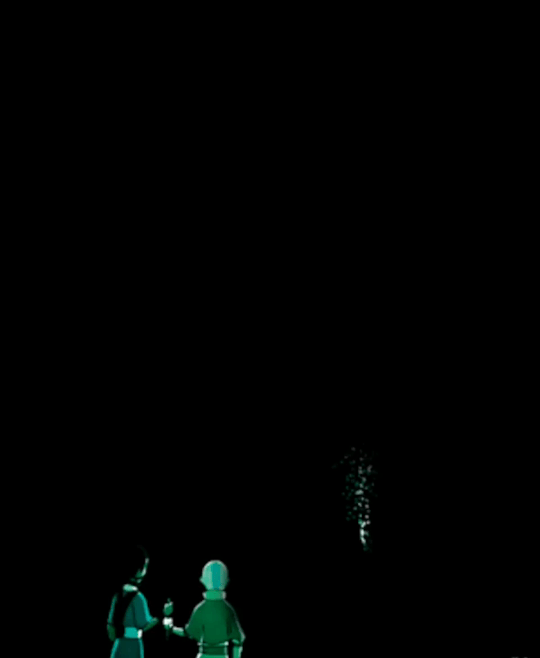
It stems from a strong base of mutual understanding and friendship first, and doesn’t rely on a spark of passion to keep burning although it can fuel the flame that already burns strongly. There are many great examples of this kind of love, both in our own world and daily lives, but also in literature. One of the greatest examples of this, is the relationship explored between the fictional characters Aang and Katara from Avatar: the Last Airbender. (Oh, what? You don’t think Avatar is a legitimate form of literature? Pity, you must not have read my previous posts or even watched the show at all, because it IS.)
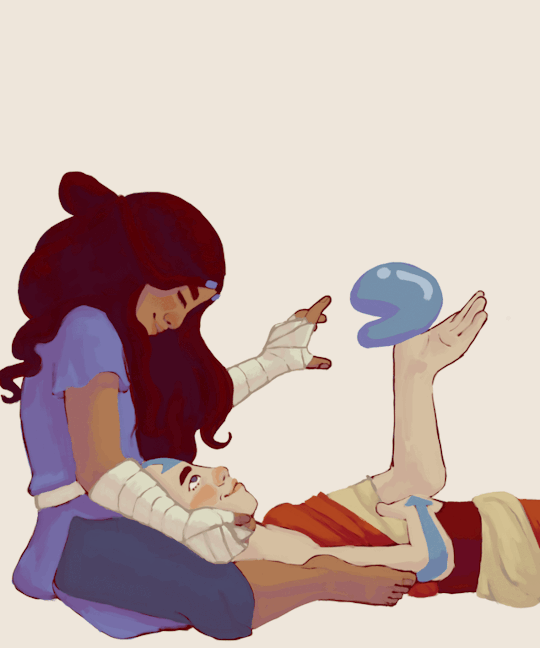
From the time I first watched the show, I was rooting for them to end up together. Right off the bat, Aang and Katara have this instant connection. Within the first episode, they already become friends, and not only that, they act as if they’ve been friends for years, almost like they were meant to meet each other. Aang finally getting together with Katara just feels right, but there’s more to their relationship than the feelings that Katara and Aang both experience and the feelings that we the audience feel seeing them together. Throughout the series we see them both make the choice to love each other, not only as lovers, but as friends too. Their relationship thrives, and we’re able to see them both grow as people and better themselves because of each other.
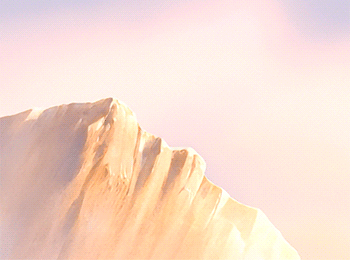
Firstly I want to address the counterargument that many people bring up and that is that Kataang, in and of itself, is one sided. Fans (often Zutara shippers. More in depth analysis on why this ship DOESN’T work out realistically to come) will argue that Kataang is forced and one sided, and that Katara doesn’t share Aang’s feelings. Although I can see where this is coming from from a first time viewer’s perspective, this argument can be extinguished by looking deeper at Katara’s actions and intentions towards Aang. We see them bond as friends very early on in the series, but the earliest hint at a romantic relationship actually shows up in season one episode four, when they go to Kiyoshi Island. Katara acts snarky and jealous when Aang gathers quite a fan club of little girls.
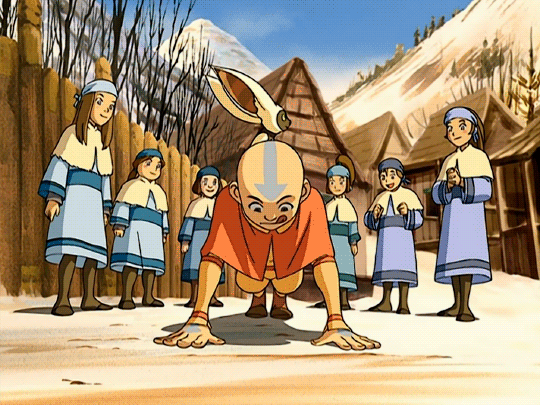
Nevertheless, when this fan club fails to stick around for Aang’s encounter with the unagi, Katara’s the one that’s there making sure he’s okay. (S1, Episode 4, The Warriors of Kiyoshi) This is ultimately foreshadowing for their relationship as a whole. Although his role as Avatar lands him many friends, and in this case fans, the only person that truly stays with him the whole time is Katara. She’s the one who shows up and has his best interests at heart. Most of her intentions are in fact platonic in this episode, but the hint of romance comes out when we see that Katara doesn’t like the idea of Aang with another girl.
After half way through season one, specifically the Fortune Teller episode, we do see that Katara does in fact have feelings for Aang, albeit complex ones. In this episode we see her pester Aunt Wu for information about her future husband and she’s informed that he’s a very powerful bender. She doesn’t consider Aang until Sokka mentions that it freaks him out how powerful of a bender Aang is while Aang protects and saves the village from it’s demise by an erupting volcano. Her hopes were set high on a muscley, extremely strong looking bender, and I’d like to imagine that before her realization, Katara was probably picturing someone more like Haru or even post redemption Zuko as her future husband. For the first time, that image is replaced by Aang, and she doesn’t mind it. (S1, Episode 14, The Fortune Teller) We see these new found feelings develop further in the Secret Tunnel episode, when Katara is finally forced to confront the romantic feelings that she’s pushed down while trying to sort them out. At this moment, Katara finally acknowledges her romantic feelings and attraction to Aang. (S2, Episode 2, The Cave of Two Lovers) The creators intentionally showed us the story of the two lovers for a reason. “Avatar is a very smart show,” says Amada Castrillo, Avatar fanatic and creator of the Tik Tok and youtube series “A Case for Kataang,” “and we’re never told or shown anything for no reason...A war was keeping them apart maybe not physically, but romantically.”
Later in the series during the season finale of season two we see her absolutely distraught when Aang nearly dies and she does everything in her power to save him. We see her almost break. Only when he wakes up does she feel better, and start to be happier again. She doesn’t care about anything else but making him feel better, and even when he does wake up, she still focuses mainly on healing him. Here we see Katara make the choice to love Aang both in sickness and in health. (S2, Episode 18, The Guru/The Crossroads of Destiny and S3, Episode 1, The Awakening) She of course would have done this for any member of team avatar, but the way in which she treats Aang when he’s nearly taken away from her points to the extreme love and affection that she carries for him every day. This happens multiple other times throughout the series, with many of the occurrences being in book three. When Zuko joins the Gaang, she flat out tells Zuko that if he were to hurt Aang, (not Sokka, not her, not Toph, but Aang specifically) she would personally see to his demise. (S3, Episode 11, The Western Air Temple, 23:30) (Some Points taken from, but not directly quoted from Amanda Castrillo’s “A case For Kataang Part Nine: Text and Subtext”) This is why the assumption that Kataang is one sided can be proven wrong.
Two other arguments stem from the previous argument, one being that Aang is a simp, and/or that Katara is a trophy. First of all, the later argument is easily disproved by the fact that Katara is not a prize to be won. “Katara is, and was never a prize for Aang,” says Castrillo, “And to say that she was, grossly mischaracterizes and undermines her as a character.” (Amanda Castrillo, (@theamanda2d) “A Case for Kataang: Chapter 2, Katara the trophy) Katara is shown multiple times throughout the series being able to speak up and defend herself without Aang’s, or anyone else’s help.
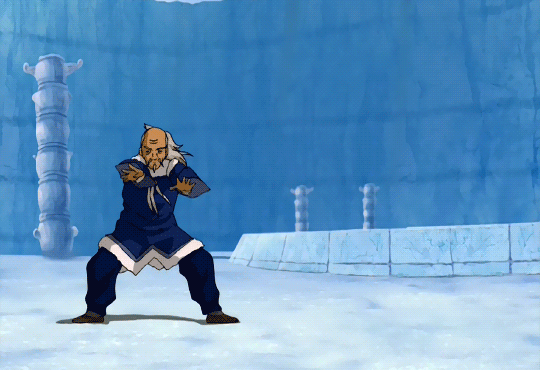
Aang, although viewed as a simp, is not. Yes he respects Katara, and all other women for that matter, but he doesn’t fawn over her. He allows her to defend and take care of herself. The definition of the word “simp” is the abbreviated term “simpleton”, meaning “a silly or foolish person.” Although Aang is silly at some points, he’s also not foolish. He’s a smart and capable individual that many fans fail to recognise as legitimate because of his innocence and softness. So no. Aang isn’t a simp that bases his entire self worth on his status with Katara.
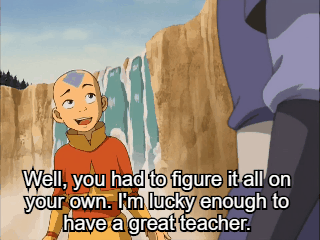
Another point that must be acknowledged is the fact that Aang and Katara are actually complementary characters. Although many people would bring up the argument that Air and Water aren’t opposite elements, the type of bender they are doesn’t necessarily tend to point to the exact type of person they are. The creators aren’t dumb, and the characters in this franchise are so well developed, that there are many sub personalities in each type of bending, and all of them can be analyzed further than the type of element they bend. Judging a character solely by the element they can bend is like judging a person on the color of their skin or a book by it’s cover, and when diving deep into each of their personalities, we can see that their personalities are actually complementary. Katara is high strung and anxious while Aang is usually calm and collected. Aang is very good at regulating his emotions while Katara is not. This aspect extends further than their personalities as well. Katara grew up in a very family oriented and close family while Aang only had one parental figure in the form of Gyatzo and occasionally a few friends. Katara is also more grounded and a home body while if he could, Aang would probably continue to explore whatever corner of the earth that he could. (Some points taken, but not directly quoted from Amanda Castrillo (@theamanda2d), “A Case for Kataang: Chapter 10, Balance”)
Another thing that I found is that when looking at color theory, Aang’s signature orange toward the end of the series and Katara’s signature blue are actually complementary colors. I’d like to think that as Katara develops and explores her feelings for Aang, Aang’s color palette changes slightly. It goes from being red and yellow in the beginning when Katara didn’t know she had feelings quite yet, to eventually shifting to orange when we see her feelings start to fully become clear. I thought this was a super interesting detail and despite it being a bit far of a stretch, I think it must have been planned. If you consider the time when we see Katara start to develop feelings, it’s about the same time that Aang’s outfit choice shifts to orange. Of course, this piece of evidence is mostly based on my personal observation and knowledge of color theory, but it’s a detail that I personally found super compelling.
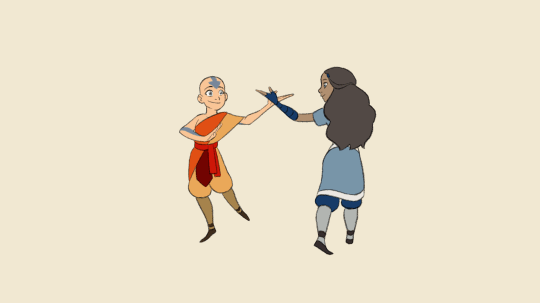
Kataang also works because of the extremely well executed communication and dialogue that happens between them. There are multiple different examples throughout the series and as their character’s develop, we’re able to see a beautifully efficient and respectful form of communication between them. We see Aang clearly express his feelings of anxiety to Katara, and in return, Katara is able to help him and offer advice on what he’s feeling. Katara also is able to confide in Aang in return and oftentimes he’s the one that she’s most comfortable being vulnerable in front of. We see her almost mother Aang alongside Sokka in the first season, but her relationship with him changes and shifts to one where both her and Aang feel comfortable and contribute and receive equal care from each other.
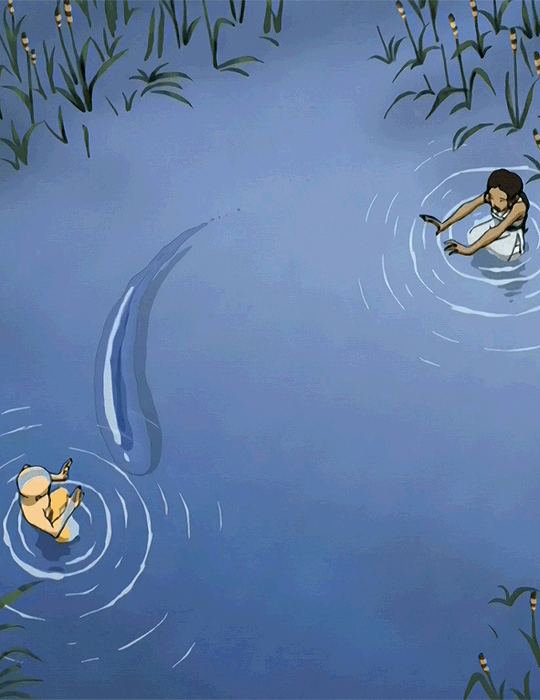
One issue in particular also comes to mind when talking about this ship, and that is the issue of boundaries. Counter arguments against Kataang often bring up one scene in particular, specifically in the Ember island players episode about halfway through when Katara confronts Aang on the balcony. (S3, episode 15, the Ember Island Players) Episode Aang is understandably upset with the way that he and specifically he and Katara’s relationship is portrayed in the play. He obviously has feelings for her and at that point we know that Katara also has feelings from a few episodes prior when they kiss before the invasion. That kiss was mutual, and she kissed him back, meaning that from that point on, both of their feelings towards each other are very clear. The night of the play on the balcony, Aang does cross a boundary that had been established. The kiss before the invasion made sense, and Katara didn’t do anything to stop him from doing it, and Aang had her consent in this case. Aang’s kiss on the balcony was a mistake, and in this case it was uncalled for, but many people misread Katara’s feelings of confusion. When Katara mentions being confused, she’s not saying she’s confused about her feelings for Aang. Since season one, we’ve seen her show multiple forms of affection towards Aang, and not only that, she was usually the one initiating the many hugs, cheek kisses, etc.
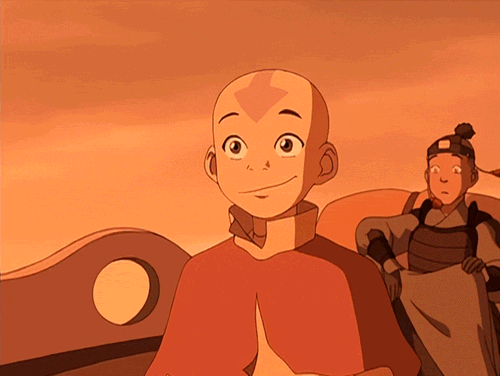
She’s not confused about how she feels about Aang. She’s confused about the timing and if it’s a good idea or not. (Some points taken from, but not directly quoted from, Amanda Castrillo (@theamanda2d) “A Case for Kataang Part 7: The Camelephant in the room)
Regarding the consent for the kiss, yes. That was Aang’s mistake. He’s human, and he did mess up there. But his intentions weren’t meant to harm anyone. He, like so many of us watching at home, read Katara’s confusion to be about him, and wanted to see what she really felt. Afterwards, he knows he messed up, and feels bad about it. “...[Aang’s] very self aware. He knows how he feels about Katara, and he’s said it multiple times...Aang is human. He f***s up. He says the wrong thing. He makes mistakes. And he was just as confused as Katara at this moment.” (Amanda Castrillo, (@theamanda2d) “A Case for Kataang Part Seven: The Camelephant in the room)
Lasty, I want to acknowledge the visual and audio parallels portrayed in the show and how they can effectively work towards supporting Kataang. If you observe the angles at which characters are shown as well as the framing, it visually sets up and can represent how two characters feel about one another. First let’s consider the framing of a scene from the very first episode after Katara breaks Aang out from the ice. Aang is lying down and katara is directly positioned above him. When he wakes up from being trapped in an iceberg for 100 years, her face is the first that he sees.
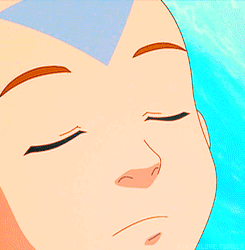
This positioning and framing is shown multiple more times throughout the series, establishing their strong connection. So is this one:
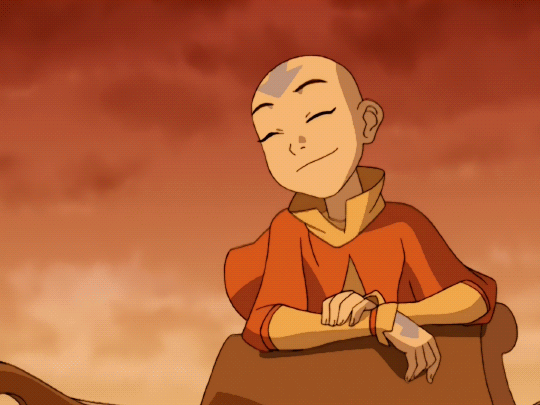
(For a better visual reference please see Amanda Castrillo’s video “A Case for Kataang Part Four: Parallels) “Its built up and set up for us time and time again. Their interactions aren’t framed like that for no reason. Scene framing matters.” (Amanda Castrillo, “A case for Kataang Part Four: Parallels.”
There’s also the fact of the score and what specific music points to what character or what mood the creators were trying to enforce with the music. Avatar’s score is genius and every song and note was hand crafted to set the tone for each scene and help explain what’s happening. (This is one of the many reasons Avatar would translate well to be a musical or even a ballet. Post/informal rant on this later to come.) There are many great examples, like how Azula is represented by a clash of chords, (To quote my previous post: “I love how Azula is just represented by a pair of clashing chords and when you hear it you know that she’s about to f*** s*** up.”) or that Aang has a lively flute melody that plays when he gets really happy/excited, but perhaps the best example of the use of music in the franchise is the use of the “Avatar’s Love Theme.” It’s my personal favorite song from the show, and it’s used extremely effectively and efficiently throughout the show to provide a very specific and recognisable feeling: romantic love. When you hear it play, Aang is ALWAYS with Katara. Go back and listen to the times where it plays, and it’s always when he and Katara share a special moment together. We only hear part of the melody for the majority of the series, but in the final episode, right towards the end when Aang and Katara are left alone on the balcony looking above the city by themselves, we hear it play again, and this time, we hear all of it. The kiss between them also happens right at the crescendo and peak of the music, emphasizing and establishing that Aang and Katara are officially canon. The music plays a huge part in this story, and all musical elements as well as visual point to Aang and Katara being a team, and not just that, but a romantic couple.
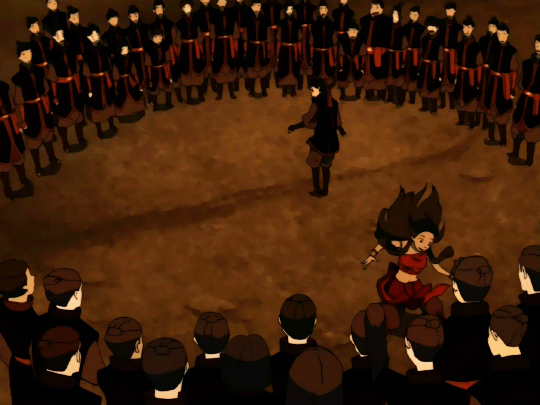
In conclusion, Aang and Katara are a couple that was meant to happen. Throughout the series, their love is shown through their undeniable chemistry, complementary characters and personality, and the visual and musical elements set up for us within the show. Aang and Katara love eachother very much, and although their feelings were often being confused by looming threats to their lives or tainted by the war they were both fighting, in the end they’re able to fully and completely allow themselves to love each other. Despite their romantic love, they are ultimately friends before they are lovers, and don’t rely on a spark of passion to be able to keep their love for one another burning. They love each other wholly and in so many different ways, and that my friends, is why Kataang works and will always work.
68 notes
·
View notes
Note
i thought the narrative did allow for sympathizing with jet and hama? hell, the narrative structure with jet and hama has their sad backstories and motives placed first, then after that they do things that make katara more and more uncomfortable until it gets to something horrifying. jet even tried to make a new life afterwards and his death is nothing but tragic. azula was introduced as a terrifying sociopath and wasn't given sympathetic attention until season 3.
Weirdly this ties in to some of the themes from the Vietnam War ask I just answered! Let’s see what I can do.
The thing is. You’re allowed to pity Jet and Hama, but they aren’t presented to us in sympathetic terms, no. We aren’t meant to empathize too closely with them, or even see them as immense tragedies. Jet’s death is sad, but it’s also a relief; it isn’t framed to stick with the viewer as even a major story beat.
We are explicitly discouraged from identifying with both of them; their role in the story is as negative examples, warning the main characters away from senseless violence and extremism.
Putting their sad backstories first and then following it with a Dark Twist actually works against making them sympathetic, because it means the motion of the narrative is away from them--we start out with a positive impression that gets worse, which leaves a much more negative psychological imprint than starting with bad and getting even a little better. It draws the attention and the story away from what was done to them and toward what they did, while the order in which Azula is shown to us moves the other way.
So their traumas are provided as context for their actions, though in a very outline version in Jet’s case, but they aren’t dwelt on; we don’t get into their heads and feel their agony with them; the narrative’s engagement with their motives is restricted to explication, and the assertion that their suffering does not justify their actions.
Which isn’t exactly wrong--they both were targeting noncombatants in a way that wasn’t likely to be terribly helpful to anyone, and that really is something that deserves warning away from because it’s very tempting when you have a lot of pain, and the proxies for your real enemy are so much easier to reach with the strength you have.
(Lateral violence is born from this process of reframing, though what they were doing was not that--they both were managing to target the actual group they had beef with, which is better than a lot of people in real life manage rip.)
But that’s a specific narrative choice that was made with these characters, to create them and deal with them as dark-reflections-in-the-world of other people’s (mostly Katara’s) wounded anger, and nothing more.
While Azula got a whole episode wherein the emotional arc of the A-plot centered largely around her feelings about her own social awkwardness and relationship with her mother.
And like. This is, for the most part, a side effect of Azula’s centrality in the story and her relationship with Zuko!
And of the way the Fire Nation royal family is used as a narrative microcosm of how the ideology behind Fire expansionism is toxic and abusive all the way down, and has to be dismantled.
So it’s not bad, exactly.
But it does mean that we’re encouraged to engage far more closely and in a much more nuanced manner with the self-image and lived experience of the homicidal, consciously sadistic young fascist from the industrially developed expansionist empire...
...than we are with the experiences and decisionmaking of the oppressed people victimized by the system of which she is a leading part.
And that’s kind of a pattern in American media, and deserves to be pointed out and critiqued where it crops up. It’s kind of inevitable, but it would be better if it could not be an unmarked default.
The narrative, in part because of the perspective from (and to) which it was being written, can more comfortably engage with Azula’s experiences because they’re ultimately personal--they interface with the broader, institutional reality in terms of allegory and in terms of consequence, but they are built on and about, and can be discussed in terms of, the interactions of individual persons.
While otoh Jet and Hama’s formative traumas are institutional in nature--it was the Fire Nation as military power that took their families and their homes and the lives they should have had away from them; it was the Fire Nation as administrator of colonial-political prison that destroyed Hama inch by inch.
And how do you resolve that? How do you parcel that down and let that go and make peace within yourself, when the thing that destroyed you is still there in the world, still taking and hurting and still beyond your reach? It hurts and it expands as if to swallow the whole world, that question, that irreconcilable need.
Katara only comes to terms with her own, in-comparison contained, experience of being traumatized by that same institution by drilling down until it’s a grudge against a single human person, who isn’t worth it.
But of course it really was the Fire Nation that took her mother away from her. And that’s difficult. That’s beyond the scope of the children’s cartoon. So they lock it away.
And Azula is locked away in the end, too, but she’s locked away as a person, whom we came close to and watched very intimately as she broke. While Jet and Hama are to a considerable degree locked away as ideas, not allowed to escape the confines of their rhetorical roles.
Making Hama a serial kidnapper/torturer/maybe-killer and locus of horror, and sending her back to Fire Nation captivity in a community with every reason to hate and fear her, and abandoning the character there with no follow-up (except using her legacy as a characteristic of villains in the sequel series) was a narrative decision that the people writing Avatar made.
There were good reasons for it in terms of the plot and Katara’s arc and it was even good storytelling! It doesn’t Ruin Avatar and there’s not an easy fix for it.
But it was a decision, and it has reverberations in terms of the history of representation of institutionally wronged people and particularly indigenous people in American media.
Having Jet be first almost a straw man of a resistance fighter, then betrayed and victimized by his own people, and finally literally disposed of, and take his rage and struggle with colonial aftermath with him, was a choice that was made, and which also has implications and an impact on the worldbuilding.
It’s a children’s series, and it’s a plot that needs to be resolvable on Aang’s terms; there’s only so far they could pursue either thread, but those decisions--especially with Hama--carry a certain subtext, and stand in stark contrast to the depth Azula in all her glorious shattered monstrosity was permitted.
And it’s worth talking about!
I mean...Korra had a lot of writing issues, like the pacing and the horrible love triangle, but a major underlying one (at least in Season One I didn’t get any further haha) was that it tried very hard to get out of realistically engaging with the aftermath of colonial violence in any depth whatsoever, despite specifically choosing to set season 1 in a place founded on the aftermath of colonial violence.
You cannot have America without genocide and colonialism, and when you try to have expy-America without talking about the genocide and colonialism you already established in the setting...you’re shooting your narrative in the gut.
And this situation was created out of the same limitations that let Azula be more human than Jet or Hama, and dug into the ethical complexity of her situation with far more care than either of them merited.
#atla#heavy issues#meta#hama#jet#azula#colonialism#hoc est meum#marked and unmarked#imperialist norms#a nonny mouse#ask
127 notes
·
View notes
Note
Shipping aside, can you analyze Zuko and Katara's relationship, as well as Zuko and Azula's vs Katara and Sokka's
Hello anon!
When it comes to Katara and Zuko’s dynamic, I would start from this scene:

This scene is where they interact for the first time not as enemies, but as people. It is meaningful that the first thing they share is about their respective mothers.
Ursa and Kya are two fundamental figures in their kids’ lives. In particular, when it comes to Katara and Zuko, they are linked to sides of them they usually hide.
On one hand Ursa is linked to a kind and empathetic side Zuko has, but does not initially show.
For Zuko (and also for Azula, but in a more complicated way) Ursa symbolizes unconditional love. Ursa is the parent who has always shown Zuko kindness and appreciation no matter what he accomplished.
Ursa being linked to a more positive side of Zuko is made clear also here:
Iroh: “You have more than one great-grandfather, Prince Zuko. Sozin was your father's grandfather. Your mother's grandfather was Avatar Roku”.
Ozai is Sozin’s descendant, while Ursa is Roku’s. Zuko is the descendant of both and must reconcile these two sides of himself.
In short, Ursa embodies a more positive side of Zuko. This is why the flashback about her is one we have when Zuko is travelling alone and is already starting to change and to show more and more of these positive traits.
When it comes to Katara, the violent death of her mother is instead linked to a ruthless unforgiving side she rarely shows:
Katara: “It's not the same! Jet attacked the innocent. This man, he's a monster.”
Katara is usually compassionate and empathetic. As Sokka says:
Sokka: “ Nah, she doesn't hate you. Katara doesn't hate anyone.”
However, when it comes to her mother’s murderer, she shows cruelty. What is more, at the root of both Katara and Zuko’s traumas reguarding their mothers there is the fact that they grow up without knowing what really happened to them.
All in all, they stay confused and without closure to the point that years later what happened to their mothers is still haunting them. What makes their parallel even stronger is that both Kya and Ursa died/disappeared to protect their children. However, the reasons why their children risked death are different.
On one hand Zuko risks to die because Ozai does not value him. In particular, Ozai sees him and his bending as weak. On the other hand Katara risks to die because she is a bender, so she might be strong enough to pose a danger for the Fire Nation.
Both children are threathened by the Fire Nation, but for opposite reasons. Zuko is targeted because of his “weakness”, while Katara for her strength and potential. This ties to the different social role they are asked to fulfill by their respective communities. On one hand Zuko is asked to be a prince and so to exhibits traits like ruthlessness and strength. On the other hand Katara’s culture (well, the culture of the North Water Tribe, at least) asks her to be a woman and not to fight.
Both Katara and Zuko exhibits traits they should not have. Katara is powerful and has taught herself how to fight, while Zuko is compassionate and does not want soldiers to be cruelly sacrificed. They end up in trouble because of this and enter into a conflict with parts of their culture just to be themselves. At the same time, theirs is also a story of getting to know their respective cultures better and this can happen also through getting to know other cultures as well.
This is made clear by how their respective bending progresses throughout their journeys.
On one hand Katara leaves a homecountry which was almost completely destroyed by the war. Many aspects of her culture, especially the ones related to her bending, went missing and her main objective at the beginning of the series is to learn more about them. Throughout her journey she succeeds. As a matter of fact in each season she discovers more and more about waterbending. In the first book she discovers its healing properties and learns a Northern style. In the second book, she discovers the swamp style of water-bending. Finally in the last book she is trained by a Southern bender and learns blood-bending. In short, throughout her journey Katara discovers her roots and accepts both positive and negative things about them.
On the other hand Zuko’s bending develops as he learns more from other cultures:

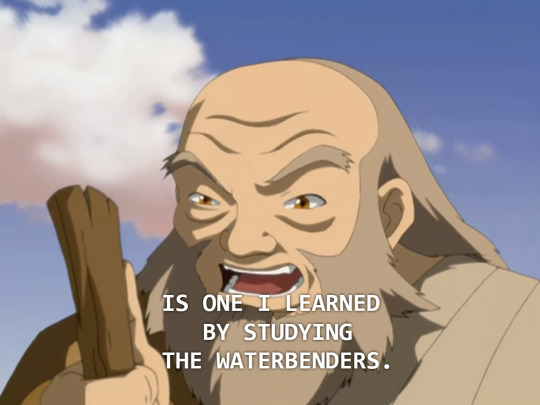
And, thanks to in his attempt to teach fire-bending to Aang, he connects with a style of fire-bending often forgotten:
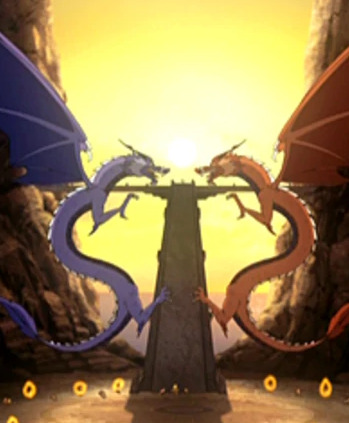
In short, Zuko is enriched by other cultures and it is through them that he also discovers more about his own.
It is also interesting that what we discover about each bending each season parallels Zuko and Katara in some way.
On one hand Zuko starts the story as an antagonist and what people say about firebending in season one is mostly negative:
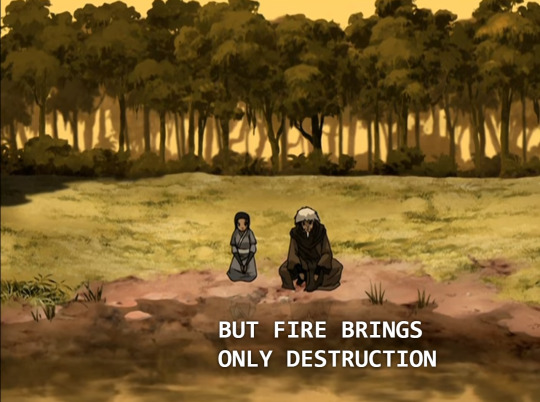
Even a firebending master recognizes how dangerous his bending is. This is what is said about waterbending instead:

Waterbending has healing qualities. Water can heal, whereas fire can only hurt. This is a good power for a character like Katara to have. As a matter of fact she is an extremely nurturing character to the point that she often acts as a mother figure even for characters who are her peers:
Sokka: “I'm gonna tell you something crazy. I never told anyone this before, but honestly? I'm not sure I can remember what my mother looked like. It really seems like my whole life, Katara's been the one looking out for me. She's always been the one that's there. And now, when I try to remember my mom, Katara's is the only face I can picture.”
However, in season three we are shown that firebending can also embody a positive philosophy:
Aang: “All this time, I thought firebending was destruction. Since I hurt Katara, I've been too afraid and hesitant. But now I know what it really is ... it's energy, and life.”
Zuko: “Yeah. It's like the Sun, [He curls his hand into a fist.] but inside of you. Do you guys realize this?”
Fire is linked to the sun and can represent life itself. After all, where would humans be without fire?
At the same time, we are shown how waterbending can be extremely dangerous:
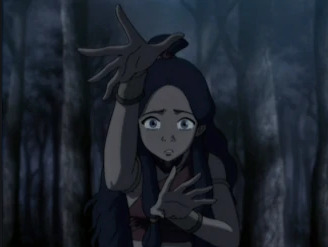
These revelations about firebending and waterbending fit with what we discover about Zuko and Katara themselves, as stated above. Zuko can be helpful and kind, while Katara can be resentful and feel deep hatred.
In short, both characters have negative and positive traits. However, they manage not to lose themselves and to find an equilibrium and this is also because of their loved ones.
This is also true for their respective cultures. All in all, all cultures have positive and negative traits and this is why it is important to acquire different points of view. This is the main theme of ATLA after all. It is not by chance that the Avatar gets to bend all elements. It is because only through knowing all kinds of people he can help maintain harmony.
Another interesting similarity between Zuko and Katara is that they foil the other’s sibling.
On one hand Zuko and Sokka are both boys who are struggling to live up to others’ expectations. Both have a father figure they wish to make proud. However, they feel they are failing.
In Zuko’s case, Ozai being proud of him is something which will never happen. This is because Ozai will never accept Zuko as a person and will fail to see his positive traits. This is why in the end Zuko realizes Ozai’s praise is not worth it. He realizes that there is already a person who is proud of him and who loves him despite it all aka Iroh.
When it comes to Sokka, Hakoda is already proud of him, but Sokka feels he is not enough if compared to his father. This is because what he mostly sees of his father is his strength as a warrior. Sokka is an average person when it comes to physical strength and battle prowess. He acquires more experience as the series progresses, but he mostly uses his intelligence and skill to solve situations. What is more, he is a normal person in a cast of people with magical power. However, Sokka slowly discovers that he can be like his father (a leader and an example) just by being himself. His strength lies in him seeing things outside the box and he does not need to lose his goofy side to be useful. At the same time, he progressively loses his toxic masculinity (just like Zuko). He starts to respect women more and learns from them, for example.
On the other hand Katara and Azula are similar in how they are both affected by their mothers’ disappearances. This despite the fact that they hide their hurt well enough. As a matter of fact it is clear pretty soon that Sokka and Zuko want to be appreciated by their fathers, but the level of pain and unsolved issues Katara and Azula have for their mothers’ disappearances is something which comes up much later.
This is because both Katara and Azula are asked by their societies to fulfills different roles. Katara is asked to become the woman of the family and she ends up mothering her older brother. Azula is instead asked to be a princess and a military leader. This makes so that they repress their issues until they come up in ugly ways:

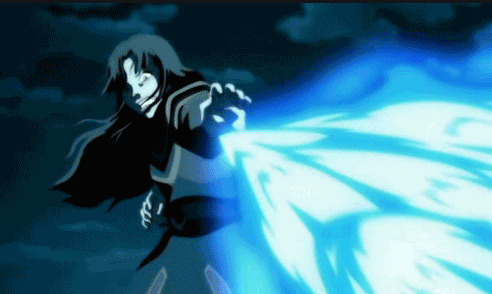
It is interesting that the moments they are at their most powerful when it comes to their bendings are also the moments where they are the most unstable psychologically wise.
That said, Katara still manages to process her feeling of grief and to find closure. It is also important that she expresses her feelings of resentment towards her brother to an extent:
Sokka: “Katara, she was my mother, too, but I think Aang might be right.”
Katara: “Then you didn't love her the way I did!”
Because of this, she is ultimately able to move on.
However, when Azula has the chance to address her feelings for her mother, she refuses to do so, as I explained here:
Azula: I don’t have sob stories like all of you. I could sit here and complain how our mom like Zuko more than me. But I don’t really care. My own mother… thought I was a monster… She was right of course, but it still hurt.
In conclusion, Katara and Zuko are pretty strong foils and they represent two sides of the conflict and two different cultures, which initially despise each other. This is pretty much made clear by them being linked with water and fire respectively. This is why their story is a story of reconciliation and forgiveness and this is made clear when one compares their respective roles in each season finale.
In the first season finale they fight each other. This is the first time they are on equal footing because Katara finally got the chance to be trained. The focus is mostly on their competitiveness and conflict.
In the second season finale, they discover they are more similar than what they think. They have similar traumas and are in similar situations. However, even if Katara is ready to give Zuko a chance, Zuko betrays her and a reconciliation does not happen.
Finally, in the third season finale, they are shown fighting together against Azula, who is a foil of both. They save each other’s lives and help to end the war.
These are my main thoughts on these two characters and their foiling.
Thank you for the ask!
114 notes
·
View notes
Text
Okay so I finished A:TLA and while it was good to finally see an *interesting* dynamic between Zuko & Katara (besides her just sniping at him constantly), it was a bit too-little-too-late and it also felt like deliberate ship-baiting?? Especially those moments like when the play they went to see had their counterparts hooking up, or when June was like “I see you worked things out with your girlfriend” and they’re both like “WhAt NoOooOo!?!!?” From a storytelling standpoint, you only do that shit when you’re setting up an eventual endgame, but knowing that wasn’t gonna happen, it felt really troll-y on the writers’ part. And it also came at the expense of Aang, who was really hurt by that stuff in the play. It was almost like the writers were deliberately trying to punish anyone who wanted to see Zuko & Katara end up together — “SEE?? See what you did to poor Aang?? Happy now, dumb insensitive Zutara shippers??” Mmm don’t care for that...
Ultimately, Zuko & Katara SHOULD have been endgame, as it was they had the most interesting development/dynamic, but there was no setup for it until way too late in the game. But also, Katara and Aang just felt... weird? Like when they kissed in the very last scene, it was super cringey?? Like imagine if The Phantom Menace ended with Anakin and Padme making out—same vibe, imo. And also, because they had spent so much time in Season 3 ship-baiting Zutara, any significant development between Katara & Aang took a backseat. It went from “ehhh I dunno, Aang, I’m confused” to “GIMME DEM LIPS YOU SEXY 12-year-old!!!” within the span of a few episodes.
Also, wasn’t a huge part of Aang’s personal conflict the fact that he needed to let go of Katara in order to open all his shakras and go full Avatar? That was what had been holding him back, it was a MAJOR part of his character development, but when he was fighting Ozai, he just.... did it? With no explanation as to how he was able to suddenly do that? Clearly he never “let go” of Katara, so were we supposed to just assume he was SO POWERUL that he could have his cake and eat it too? That he could activate his Avatar Mode without having to let go of Katara? Did I miss something?
So a way more satisfying way for this whole thing to play out was for Aang to finally decide he needed to let Katara go, gracefully, so that he could achieve his full Avatar potential, and then Katara (who only ever seemed *mildly* interested in Aang anyway) could end up with Zuko without any lingering guilt on her part (or the audience’s).
15 notes
·
View notes
Text
Tyrion and Zuko: Never Forget Who You Are
This is part three of a meta comparing these two characters. Read part one here and part two here.
One of the defining moments for both of these characters is when they are talking to a younger character that they relate to who is on the opposite side as them, but who will later become a friend.
Tyrion to Jon:
"Fourteen, and you're taller than I will ever be. [...] I will never make a swordsman. Had I been born a peasant, they might have left me out to die, or sold me to some slaver's grotesquerie. Alas, I was born a Lannister of Casterly Rock, and the grotesqueries are all the poorer. Things are expected of me. [...] I must do my part for the honor of my House, wouldn't you agree? Yet how? [...] I have a realistic grasp of my own strengths and weaknesses. My mind is my weapon. My brother has his sword, King Robert has his warhammer, and I have my mind … “
and Zuko to Aang:
You're like my sister. Everything always came easy to her. She's a firebending prodigy, and everyone adores her. My father says she was born lucky; he says I was lucky to be born. I need don't need luck, though. I don't want it. I've always had to struggle and fight, and that's made me strong. That's made me who I am.
Even at this early stage in these characters’ stories, where they are still very much indoctrinated into their family’s BS, both of them recognize this inner conflict between who they are and who their families want them to be. And both of them draw inner strength from things that set them apart from the ideology that they’ve been indoctrinated into.
Both are forced to adopt new identities as refugees, and it’s here that they are forced to rely on the things that were not valued by their families. Zuko relies more on his sword-fighting abilities than his bending, and Tyrion reclaims things about himself that his father hated, such as his tumbling, and takes on the role as dwarf jester to survive. It’s because of these characters’ ability to develop an inner strength independent from their families that they are able to do this, even though they had previously been taught to devalue those parts of themselves.
They both draw on that inner strength that comes from the things that set them apart.
Ursa: Remember this, Zuko. No matter how things may seem to change, never forget who you are.
Zuko remembering his mother’s words when he is a refugee can be compared to Tyrion’s words to Jon when he is empathizing over the latter over them both being “bastards.”
"Never forget what you are, for surely the world will not. Make it your strength. Then it can never be your weakness. Armor yourself in it, and it will never be used to hurt you."
I think we can say that Zuko’s mother’s words are part of where he gets that inner strength that he mentions above (”That’s made me who I am”), and Zuko’s love for his mother was something that was treated like a weakness. Both Tyrion and Zuko have to struggle with this concept of owning who you are and making your weakness your strength. And although Tyrion imparts this advice onto Jon, he struggles just as much as Zuko does with owning it.
Both characters also go through journeys that involve a great loss of privilege and being forced to experience life from the perspective of those who are most oppressed. Both characters use false identities while in exile, as fugitives from both their own families and people who hate their families. Both also are forced to adopt identities that they had previously disdained are forced to let go of their classism. But as I said in part one, the narrative here is not a straight line, and both characters experience at times growth in compassion and times where they take advantage of others. One example of this for Zuko is his interactions with Song, who invites him to eat with her family and empathizes with him over his burn scar, which forces Zuko to relate to someone who can relate to him on a similar level. Yet he also ends up stealing her ostritch horse. This is similar to Tyrion’s interaction with Penny, who he can relate to because she is also a dwarf, and who represents the first time he is confronted with someone who can truly empathize with his disability, but who he also sometimes treats with disdain and cruelty. Although it should be noted that in both cases these characters cannot totally relate to each other. Penny and Tyrion experience their dwarfism in different ways and while Penny lacks Tyrion's class privilege, she comes from a loving home where she was taught not to be ashamed of her body, and she tries to kiss Tyrion on the assumption that they have a connection because of their shared disability, but it doesn't work. Similarly, Song tries to force a connection with Zuko on the assumption that she understands him because of his scar, however she does not know the story of how Zuko got that scar and has the privilege of hiding her scars that Zuko does not because his scar is literally on his face.
Jin and Penny also have similarities as Jin is someone who is attracted to Zuko who he is kind to but ultimately rejects romantically because of his own insecurities and his preoccupation with his current goals, and Tyrion does the same with Penny.
Both characters meet people throughout their journeys who make assumptions about them based on their appearance. Both also experience hatred from people for the crimes of their families, even while they themselves are forced to go into hiding from their families.
Katara: You’re the Fire Lord’s son. Spreading war and violence and hatred is in your blood.
and Tyrion in ADWD:
"—I know who the dwarf is, and what he is." Her black eyes turned to Tyrion, hard as stone. "Kinslayer, kingslayer, murderer, turncloak. Lannister."
What I think is particularly interesting about these two scenes is that both of them are prisoners, at low points in their narrative, when this dialogue happens. And both are actually empathizing with the people who are responding to them with hatred. Zuko trying to connect with Katara through the loss of his mother, and Tyrion understanding what the Widow of the Waterfront actually wants to hear and being on his way to join Daenerys.
Both characters also experience their inner conflict through an anger at the world. This is shown in Zuko’s “lucky to be born” speech about himself vs his sister and in the episode “Bitter Work,” in which he seeks out his own lightning after Iroh refuses to use lightning against him.
Zuko: You've always thrown everything you could at me! Well, I can take it, and now I can give it back! Come on, strike me! You've never held back before!
Tyrion also has moments where he rails against the world and at the gods because of the cruelty he’s faced in his life.
And when I die, please let them bury with me a crossbow, so I can thank the Father Above for his gifts the same way I thanked the father below.
This is also a nice connection between the two scenes where both characters confront their fathers (discussed in more depth below), as Tyrion uses a crossbow on his father and Zuko is able to redirect his father’s lightning.
There's a lot of discussion in fandom about what makes a good redemption arc, and the thing is that I think most of these discussions overlook something that is key in both Zuko and Tyrion's narrative, and that is how hard it actually is to do the right thing when you're constantly told that everything you do is wrong, and how hard it is to distinguish between the things you need to apologize for and the things that aren't your responsibility or things you never should have been blamed for. And because they are traumatized characters - both with significant physical disfigurements - both Tyrion and Zuko have times when they assume that people are judging them for the wrong reasons.
Katara: It's just that for so long now, whenever I would imagine the face of the enemy, it was your face.
Zuko: My face? I see.
Obviously there’s a lot of discussion of Zuko’s redemption arc and what makes it work and in contrast, Tyrion’s narrative isn’t finished, and is currently left in a pretty dark place, but one thing I love about both of these stories is the acknowledgement of how hard it is to trust other people when you’ve been hurt, and how hard it is to trust even your own perceptions and judgments. And to be honest, I think that much of discussion of Zuko’s heroism overlooks that because everything turned out alright in the end, even though I wouldn’t even say that he’s fully recovered from his trauma by the end of the story. Even when he’s fully become one of the “good guys” he has times when he’s angry, insecure, overly apologetic or self-righteous, and negatively impacts his relationships with others. The reason why this story works is not so much because of its ability to give the character redemption, but because of the acknowledgement that redemption, or recovery, is hard.
Both also have scenes where they remain loyal to their families but experience conflict with their family’s worldview after being exposed to the wider world and empathizing with others who have been hurt by their families.
It is high summer for House Lannister, so why am I so bloody cold?
And again, although these narratives are different because these points happen at different times in the narrative, both characters have instances where they are responsible in some way for an imprisoned character who they empathize with (Iroh for Zuko and Sansa for Tyrion) which causes them to question the rightness of their family.
Zuko: I have everything I always wanted, but it's not at all how I thought it would be.
And both have parts of their stories where they are welcomed back into the fold of their family only to be nearly killed. Tyrion in ACOK during his tenure as hand of the king in which he appears to be on top but is brutally reminded of how conditional the power and acceptance he has is when he loses it again after the Battle of the Blackwater and the slow ebbing away of agency he experiences throughout ASOS which ends in him being falsely imprisoned and nearly executed for regicide; Zuko early in his story when his sister almost successfully tricks him into walking into being imprisoned with the promise of going back home, and later when he is accepted back home but with the truth of Aang’s survival hanging over his head, and his confrontation with Ozai in which Ozai tries to kill him with lightning.
And of course any comparison of Tyrion and Zuko would be incomplete without comparing their respective scenes of facing down their fathers and primary abusers. These two scenes have different narrative impacts because of the ways they are different and because they appear at different times in the characters’ arcs, but they also have some striking similarities. Both Tyrion and Zuko confront their abusers in scenes that suggests that they’ve finally reached the breaking point where they are no longer able to overlook the intolerable situation they are in.
Both Ozai and Tywin use gaslighting to control their children and we see that a lot in Tyrion’s conversations with Tywin in which Tywin dismisses or belittles the things that Tyrion says even when Tyrion is right, and Ozai severely punishes Zuko for speaking out against him. Both Tyrion and Zuko have scenes of standing up to their fathers and speaking their minds.
Tyrion in ASOS to Tywin:
“Will you punish me if I refuse, father?”
Zuko to Ozai in “The Day of Black Sun, Pt 2″:
Zuko: I'm not taking orders from you anymore. I am going to speak my mind, and you are going to listen.
Tyrion in ASOS to Tywin:
“Perhaps I don't choose to go to the Wall, Father. It's bloody cold up there, and I believe I've had enough coldness from you. So just tell me something, and I'll be on my way. One simple question, you owe me that much."
"I owe you nothing."
"You've given me less than that, all my life, but you'll give me this.”
Zuko in “The Day of Black Sun, Pt 2″ to Ozai:
Zuko: For so long, all I wanted was for you to love me, to accept me. I thought it was my honor I wanted, but really, I was just trying to please you. You, my father, who banished me just for talking out of turn. My father, who challenged me, a thirteen-year-old boy, to an Agni Kai. How could you possibly justify a duel with a child?
Ozai: It was to teach you respect!
Zuko: It was cruel! And it was wrong.
Ozai: Then you have learned nothing!
Zuko: No, I've learned everything! And I’ve had to learn it on my own.
Both characters also confront their abusers with their abuse of an important female character whose love and whose disappearance had a huge impact on their life. Tyrion asking Tywin what happened to Tysha can be seen as a parallel to Zuko’s final scene with Ozai where he demands to know where his mother is.
And just as this question is left open in the main series of ATLA (yes, I know about the comics, but I kind of like the ambiguity for thematic purposes), I don’t think Tyrion is ever going to find out what happened to Tysha.
One main difference in the two characters confronting their fathers is that Tyrion kills his father and Zuko doesn’t, and in addition to this being a result of a difference in tone and medium between the two stories, Zuko also is spared from having to make that choice because of his belief that it is Aang’s destiny to defeat Ozai. Tyrion suffers a mental breakdown after killing his father while Zuko is able to integrate himself successfully into a new social group (eventually). Tyrion starts to do this in ADWD but again, that story is not finished yet so it is hard to say how it will be resolved.
Both characters also frequently act like the victims of abuse that they are in their interpersonal relationships, and tend to expect that people will invalidate their feelings or be outright hostile to them. As I said above, this is also because of their experiences with people reacting to their physical differences, which both play a big role in their trauma.
Finally, both characters have a spiritual connection to dragons and this plays a big role in their journeys towards self-discovery.
Aang: All this time, I thought firebending was destruction. Since I hurt Katara, I've been too afraid and hesitant. But now I know what it really is ... it's energy, and life.
Zuko and Aang discover the true meaning of fire from the firebending masters, the dragons themselves, legendary creatures who were thought to be dead. It’s also very thematically interesting that the dragons were thought to be wiped out by the Fire Nation, and Zuko, the prince of the Fire Nation, learns that fire doesn’t have to mean anger and pain, but that it also represents life and rebirth.
Dragons also have similar meaning for Tyrion, a meaning that increases the closer he gets to Daenerys and makes his way towards helping her cause of fighting for freedom and life. Tyrion and Dany’s connection to the dragons links them as marginalized characters and people for whom dragons represent fighting back against oppression.
“Even a stunted, twisted, ugly little boy can look down over the world when he's seated on a dragon's back."
And thus, in both narratives, we see fire representing the potential for destruction and the desire for power, and we see disempowered and marginalized characters who seek to obtain this power but also have potential to hurt others because of the ways they have been hurt, but then the narrative flips that meaning on its head, showing that it’s possible to recover from trauma, that a person doesn’t have to be defined by anger and pain. And ultimately, that’s what’s compelling about these sorts of characters, regardless of how our struggles are similar or different than the characters we watch or read about or whether we get to see them fail or succeed.
17 notes
·
View notes
Photo

I see no god up here other than me
Ty Lee- Ty Lee is best girl and I find it hard to argue with that statement. She’s just so bouncy and cute and honestly really powerful for not being a bender. I mean, the ability to paralyze someone on contact, much less being able to pinpoint specific parts of the body to paralyze, it’s just incredible. She was so cute in that beach episode because all the guys hit on her, which of course they do, have you seen how cute she is? I’m not super on board with her backstory, but it wasn’t a huge part of her character, so it’s fine.
Sokka- The man, the myth, the legend. It’s been said before, but the only reason Sokka couldn’t bend is because the creators knew he’d be too powerful. That’s the same reason he has to put his hair up. Also, he’s totally bi, change my mind.
Jet- I have several friends that watch this show and that watched the show before me. They all knew that I’d like Jet because he’s a “backstabbing traitor” despite their hatred of him and I guess I have a trend of liking those characters. I jokingly agreed with them and was excited to meet him. Little did I know just how much I would fall in love with him. A lot of my friends say that it’s just because he’s cute or he’s a sad boy, but there are honestly so many reasons to love him. I absolutely adore psychology and deep-diving into the minds of characters and his mentality is so intriguing. You would think this would lean me more towards Zuko, then. But Zuko gets so much focus that his psychology is always precedent, right front and center. But Jet doesn’t get that spotlight. I originally liked him more because he was under-appreciated, but now I realize just how amazing he is. At a very surface level, his actions are bad. He’s trying to murder innocent people for the sake of getting rid of a few fire nation soldiers. But as soon as you look deeper into his intentions, you can clearly see how badly he wanted to do good. These types of characters are always the saddest, the characters who think they are helping the world by destroying it. They legitimately think that the actions they are taking are the right ones even when everyone around them thinks otherwise. Other examples of this type of character are JD from Heathers and even Hector from Castlevania to some extent. Yes, he acknowledges that he will be sacrificing innocent lives. But he also knows that he will be saving lives in the future by going through with the dam plan. There’s so much more I could say about him, but I’ve been rambling for long enough.
Zuko- There’s nothing I could say about Zuko that hasn’t been said before. I already gushed about Jet for entirely too long, so have this instead: Sokka and Zuko have a wonderful relationship and I think that both parties could have benefitted greatly from being together romantically. Thank you.
You’re the best
Iroh- What can I say? He’s a good old man with lots of wisdom that we should all take to heart.
Momo- Some of my favorite parts of the entire show were scenes with Sokka and Momo just vibing. There should’ve been more emphasis on Sokka’s relationship with the animals in general.
Appa- I was really excited when Sokka started flying on Appa without Aang the first time, because I thought that meant that Sokka had created a really unique bond with Appa and was the only other one that could fly him. I was mistaken and incredibly upset.
Teo- He’s just a cute boy. I like his goggles.
Hey, I think you’re pretty cool, I like you a lot
Azula- Oh boy. There’s so much here to say, but she’s been analyzed to death, so I won’t go on for too long. As much as I would’ve loved to see Azula on the “good guy” team, I’m really glad she didn’t get a redemption. Not her, specifically, but more the villains in general. Zuko’s redemption was marvelous and there’s nothing that will ever top it, but if Azula had also gotten that redemption, his would’ve been downcast. It would’ve showed that anyone’s capable of a redemption and that he wasn’t special, he was just lucky to have that change of heart. Which maybe that’s still true, but at least with the ending we got, we give Zuko that spotlight. But back to Azula, she’s pretty cool, as the category would suggest. The Girl Gang (Azula, Mai, and Ty Lee) were a treat to watch and I instantly fell in love with all three of them as soon as they were introduced. Then they had to change to the Gayng once Zuko joined and I still loved all of them.
Longshot- It was super powerful when he spoke for the first time in Jet’s “death” scene. That was the first time he had said anything and he made it count. He helped show how even thought Jet is a “bad guy” at the surface level, he was still good enough of a leader and a friend for his group to stay with him in his ultimate time of need.
Suki- She’s badass. That’s about it. All parts of The Boiling Rock were my favorite episodes and they featured her pretty heavily in the back half. And I was not complaining.
Toph- Again, badass.
Aang- He’s the main character. I don’t have any super negative things to say or any super positive things to say. So he’s just here.
Kuei- I know he doesn’t do anything, like at all, but I can’t get over him and his bear.
Yue- When I started watching this show, I knew about some of the ships and I wasn’t super into it. Which was weird, because I’m always super into shipping. I wouldn’t have watched some of my favorite shows if it weren’t for the shipping aspect. But I just couldn’t get on board with it in this show. Aang and Katara felt kinda forced and weird, Sokka and Suki was alright, but I couldn’t quite get into it. But when I first saw Sokka and Yue interacting, I was enthralled. I was in love with their relationship and I thought it was so cute. I was genuinely excited to see where their relationship would go. But you know what happened next.
Mai- When I first met Mai, I loved her. She was an emo girl that just didn’t want anything to do with anything. Obviously, I still love her, but just slightly less. Something happened to her in the third season, and though I can’t pinpoint quite what, I have a feeling it was Zuko. I’m not a huge fan of Mai and Zuko’s relationship and I’ll possibly elaborate on that in a future post, but it really felt like the worst possible scenario for both of their characters. I do like Mai and Ty Lee together, but the shipping doesn’t really have anything major to do with it. She just dropped in quality a little in the third season and became a love interest instead of a character.
Kyoshi- Peace was never an option.
I remember you
Cabbage guy- This is normally the type of character I’d put at the top of the list and use as a joke to pretend like I especially enjoy the joke characters. Sometimes I do, but this list’s tone was a little different than usual, so I figured I’d put him where I really thought he should go. He was funny, sure, but I don’t religiously follow him like I do Ty Lee and everyone else in the top tier.
The other characters in this tier are in no particular order. Most of them are here just because I remember seeing them a little bit, but I don’t really remember much about them or I remember just not caring.
You are literally the worst. Actual scum. Leave this planet and never return.
Haru- This is more directed towards his newly-grown facial hair. He was so cute in his first appearance and then he had to do that. Even Sokka’s “I flirt with everyone” bisexual ass thought it was grody.
Hama- Nothing against her, personally, bloodbending’s just gross.
Zhao- He’s a typical villain. I can appreciate that, I just don’t like him.
Katara- This will take some explaining. It’s unpopular, but so is everything I say. I think of Katara in about the same way I do Allura. She was bearable in the first season, annoying in the second, and flat-out awful in the third. I understand that characters should have flaws, and I appreciate when they do, but her flaws aren’t necessarily treated as such. The worst offender I can think of with her is when she accused Sokka of not missing their mom as much as she did. This broke my heart. Seeing Sokka’s depressed face as he realized what his sister thought of him. He had been seeing her as sort of a replacement for their mom, but she accuses him of moving on without a second thought despite how much effort he puts into remembering her. This obviously isn’t the only bad thing she’s done. Another huge offender is when she assumed losing her mom was worse than Aang losing his entire nation. And then the show just keeps moving like she’s justified in thinking that. She’s done so many other things that caused other characters to halt in their development or causing the plot to just stop completely. Most of her actions are nonsensical at best and harmful at worst, but the show portrays her as always being a caring motherly figure. She does act like that at times, but we still need to acknowledge when she doesn’t.
Ozai- Literally the same as Zhao except he hurt Zuko physically AND emotionally.
#bullshittierlists#atla#avatar the last airbender#was a little confused why I wasn’t getting any notes and then I realized I didn’t leave any tags#sorry to everyone who likes Katara#but it needed to be said#tier lists#ty lee
2 notes
·
View notes
Note
*sigh* why do people keep comparing r/eylo to zutara and putting them in the same group? Were they not paying attention to the show? Did they not see Zuko's evolution?
Honestly, I really don’t know.
Like, ok, superficially, I can almost kinda get it. Angry boy with a scar on his face and the girl who could kick his ass offering to heal him? Ok, fine. Even aesthetically, red and blue, tol and smol, fine. I can sorta see it. But the instant you dig even a little bit deeper, they just… aren’t the same at all???? Not even remotely????
And, ok, I’ll admit to some measure of bias, because I don’t ship reylo and I don’t like it as a ship, nor do I want it to happen in any way in canon, but like, part of the reason Zutara works so well is that it’s not a hero/villain ship. It’s enemies-to-lovers, for sure, but the vast majority of us ship it because of Zuko’s redemption arc.
Yeah, you’ll see ‘I’ll save you from the pirates’ UST jokes, and a lot of us started shipping it back in book 1, but it was obvious from the beginning that Zuko was going to get redeemed. He may have been a villain, but he was never the villain–he was narratively placed as the secondary protagonist (deuteragonist) of the show from his very first appearance. He was given his own narrative arc that had little to do with the main plotline of Aang’s journey, because while his own journey ran parallel to the gaang, it was separate and distinct because he was on his way to his own redemption even then.
Zuko Alone, in book 2, drove this home even further. You don’t give someone who isn’t the primary protagonist of the show an episode all to themselves (literally none of the gaang shows up for even a second) unless this is a character who’s meant to have just as much narrative significance as the main cast. Zuko was always going to join the gaang, and so much zutara meta and fanfic rests on how amazing and emotionally fulfilling their relationship development was, as friends, and that it would have made so much sense for their friendship to go even further.
Reylo doesn’t have any of that.
First of all, Kylo Ren is not Zuko–not even close. Kylo has far more agency in being dark than Zuko ever did. Ben Solo had loving parents and grew up in a supportive environment. His uncle ultimately made a mistake, sure, but a) we see three versions of that particular story: the sanitized version (luke), the demonized version (kylo), and the truth, and b) kylo already had the knights of ren all ready to go and slaughter a bunch of kids.
He was already dark. You don’t go and murderdeathkill a bunch of kids and people you’d ostensibly been raised with just because you saw your uncle standing over you with a lightsaber he clearly wasn’t going to actually use unless you were already making plans to do just that. You can blame as much of it as you want on Snoke and his influence, but that would be a little like blaming Palpatine for Anakin–yeah, he gets some of the blame for manipulating the situation, but Anakin’s still the one who made the choice to kill a temple full of children and choke out his own wife. Darth Vader may have, in the end, chosen to return to the light, but that doesn’t absolve him of the evils he chose to commit.
Kylo is, tragically, in the same narrative position as Darth Vader was in the original trilogy–and Vader couldn’t even bring himself to kill his son. But Kylo chose to kill his father. And that, incidentally, is one of the places where Zuko and Kylo are essentially diametrically opposed. Zuko turned on Uncle Iroh, yes, but he didn’t cross a line from which there was no coming back–he didn’t kill him. He, in fact, kept going to see him, trying to figure out why the choice he’d made felt so wrong when it was supposed to be everything he’d always wanted. Meanwhile, Kylo murdered his own father because he was hoping to destroy that last link to his own humanity.
And he succeeded.
Furthermore, Rey is not Katara. I love them both, so much, but they are very different people, and different characters who fulfill different narrative spaces in their own stories. In Rey’s position, Katara would probably have killed Kylo in the throne room when he turned on her after killing Snoke. Or, placing Kylo in Zuko’s place in atla, if he’d killed Hakoda (remembering that Han was the only father figure rey’d ever known)? She would have destroyed him. No fucking mercy
Katara does not forgive easily. It took Zuko not only proving that he was on the side of good (which he did multiple times, one of which he even saved her father), but specifically proving to her that he cared for her and genuinely wanted to help–by helping her gain closure for her mother’s murder. She emotionally connected with Zuko in the crystal catacombs, sure, but when he turned on her she hated him and had no intention of turning back. (Even though, from Zuko’s perspective, it wasn’t a betrayal at all–he’d made no promises, and it was his sister offering him everything he’d ever wanted. As far as he was concerned, the only person he betrayed there was his uncle, which is why it took him so long to realize just why Katara hated him so much. And even then he needed her brother’s help to figure out how to fix it.)
On the other hand, Rey was ready, willing, even eager to believe that Kylo could be returned to the light side–could become Ben again. This after he’d done something utterly unforgiving right in front of her, and tried to kill her multiple times. (Notably, at no point during Zuko and Katara’s antagonistic relationship was Zuko actually trying to kill her. He was trying to capture Aang. The worst thing he did was burn down Suki’s village, and that was largely an accident, because he was trying to get to Aang to capture him–alive.) She wanted to believe there was good in him. Katara couldn’t have cared less, throughout the first two books–and then, when confronted with the fact that Zuko had suffered something to which she could relate, she connected with him… and he turned on her. (From her perspective, she’d just reached out and offered this boy a chance to prove he’d changed… and he threw it in her face. So yeah, she took it incredibly fucking personally.)
Even now, it’s possible that if Kylo comes at Rey with some ‘I’m really light now’ story, she’ll probably want to believe him. But even if Reylo happens (and I’ll stress that I really don’t think it’s going to, and if it does I’ll probably be bitterly disappointed, but what else is new) it won’t even remotely resemble Zutara because they are, at their core, incredibly different relationships. Katara didn’t start warming up to Zuko, after that book 2 betrayal, until after he’d proven himself again and again, and helped her begin to heal from the trauma she’d suffered as a child. Furthermore, Zuko was never that evil to begin with. He was being primed for a redemption arc from the start, and he never even came close to the sort of moral event horizon Kylo pole-vaulted over when he murdered a whole bunch of students in their beds and then killed his own father.
And here’s the thing a lot of these Zuko-lite redemption arcs don’t seem to understand–it’s not a one-size-fits-all storyline. You can’t just slap Zuko’s redemption arc on any old villain, because for a redemption to work, it needs to be tailored specifically to fit the villain in question. And most villains aren’t Zuko–he was a very special kind of ‘secondary protagonist who starts out bad and gets a little bit worse before he gets better and joins the good guys’, which most villains can’t hope to match. If you want to redeem someone who’s canonically done far more atrocious acts, their redemption has to encompass the fact that not only are they getting better, but they are actively atoning for the horrible things they’ve done.
Killian Jones, from Once Upon a Time, had a redemption arc which looked nothing like Zuko’s, because he wasn’t a villain like Zuko. His redemption involved not only coming to realize that he’d been doing bad things for a very long time in search of a vengeance which was, ultimately, not what he really wanted or needed, but also making amends to the people he’d hurt over his very long life (those he still could help, at least). (Interestingly enough, that same show had a great example of a horribly botched redemption, in which we were supposed to take it on faith that the character was Good Now even though she’d never once expressed either remorse for the evil she’d committed [which was a lot more evil than Killian ever had] or a desire to make amends to those she’d wronged. In fact, come the end of the show, she still had a vault full of stolen hearts she’d never so much as made an effort to return, even though many of their owners were, ostensibly, in the same town she’d created through one of her many acts of villainy. It was… kind of strange, to say the least, to see how they could get one villain’s redemption so right and another’s so horribly wrong.)
Anyway, tl;dr: the upshot of this all is, Kylo Ren is not Zuko–he’s not even close–and Rey is not Katara. Their relationships look nothing alike, and even if Kylo is redeemed, it’s not going to look anything like Zuko’s redemption–partly because Zuko was never that bad to begin with and Kylo would have much more for which to atone, partly because their narrative journeys are so very very different–and I have never understood the comparison beyond a very surface-level reading of their character aesthetics.
175 notes
·
View notes
Note
Do you think Ursa would have an important role in Azula's redemption?
Yes and no.
I think finding Ursa or finding out what happened to her would be an important closure for both Azula and Zuko that could very well be part of a redemption journey.
For Azula’s redemption, she would really need to figure out who she is and more importantly who she wants to be. That definitely means dealing with whatever issues mirror-Ursa represented for her during the breakdown.

The straightforward explanation (the one she gives in The Beach) is that her mother thought she was a monster, and loved Zuko more than her. If this is really the case (I personally don’t think), Azula would have to process this and find a way to let go, the same way Zuko had to face and let go of his need to be loved by his father.
If we make a parallel between Zuko in the beginning of S3, as he goes home and gets back his honor, something he wanted so badly, he realizes that it’s not at all what he wanted - what he really wanted was his father’s love. He also realizes that it was not worth it, because he lost some important things on the way (himself, his uncle). Zuko is already at a point of character development that he can admit that he was wrong and is able to step on the path of redemption (and that happens also in the presence of Ursa, in a way).
I think it’s similar with Azula. She thought she wanted power (because validation by Ozai was tied to being perfect, a winner, having no weakness), but when she gets to the point of becoming Fire Lord, it feels empty, because in the end, she’s alone, and she also only really wanted love. But she’s not able to admit that yet, because love is also the ultimate weakness, the thing that gets people hurt, and the Fire Lord cannot be weak in Azula’s mind.
I think the Ursa in the mirror represents this desire to be loved, but also represents Azula’s conscience; the part of her that knows right from wrong, the part of her that thinks that the things she has done (almost killing Aang, hurting Iroh, Zuko, Suki) - are monstrous.
As far as the actual redemption story goes, I can imagine it either way. Maybe they find Ursa, and understanding that she loved Azula all along, could be incredibly healing. Also, I think it would help Azula if she could have the kind of scene Katara had with Hakoda in the beginning of S3, where she could tell Ursa that she understands why she did what she did, but also tell her, how hurt she was to be abandoned like that without a word, when she was just a little kid.
On the other hand, I also think it could be liberating for Azula going the other way, and processing and letting go. What Ursa may have thought of her doesn’t define her. Azula gets to choose who she wants to be in the future, but she will have to certainly face that image in the mirror, and admit that she had done some monstrous things, yet she is not a monster if she doesn’t choose to be one. She’ll also have to allow herself to love and be loved and not to view it as a weakness anymore, to basically reintegrate that gentler side in herself that Ursa represents for her.
259 notes
·
View notes
Text
Air: “Endgame”

Eleven episodes and a two-week hiatus later (oops!)~~
My praise, my wishes, and my feelings of the season finale of Book I.
[Heart eyes.]
Oh, Bo. What would we do without you.
As always, he gifted us with his silly and endearing humor,
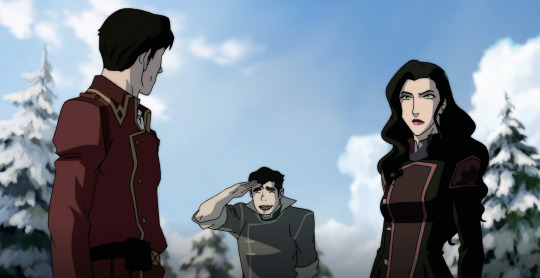
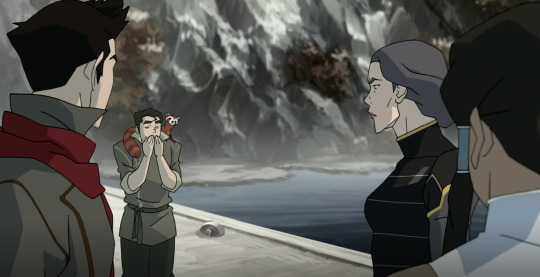
but he also starred in some fantastic collabs.
Bolin x Naga
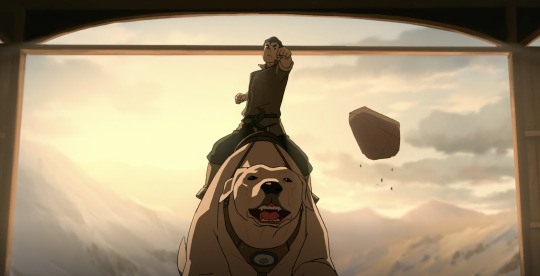
Bolin x General Iroh

Honestly, Bolin x Any Character <--- now that’s my kind of ship.
General Iroh is just as stupidly fearsome and heroic as his grandfather.
This is fact.
His stunt with the planes?
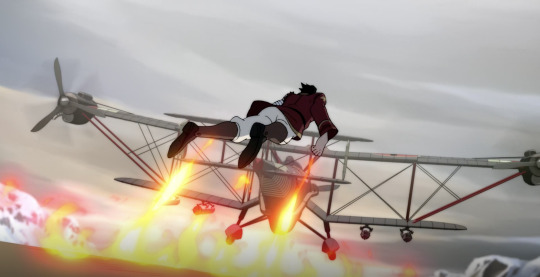


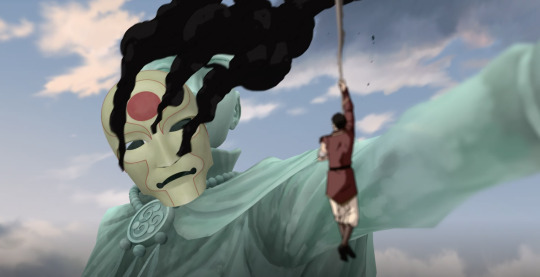
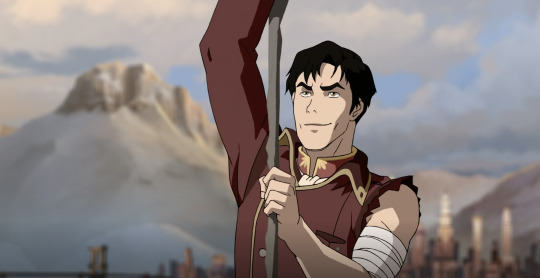
Cray.
I’m looking forward to seeing more of him in the future, preferably in the same scene(s) as Zuko because that’s something I desperately need in my life.
My favorite Mako: protective and powerful.
Let’s not forget, he can break free of Noatak’s bloodbending!!!

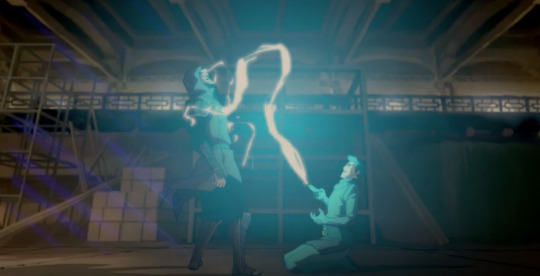


Korra---the freakin’ Avatar---couldn’t even do that! At least, not at first.
Amon admits it himself: “I'm impressed. No one has ever gotten the better of me like that. It is almost a shame to take the bending of someone so talented.”
I hope Mako’s talents become focal points in the next books. Please, oh please don’t revert him back to a frustrating, lovesick puppy who can’t make up his damn mind. It really doesn’t do his character justice.
Speaking of lovesick puppies...
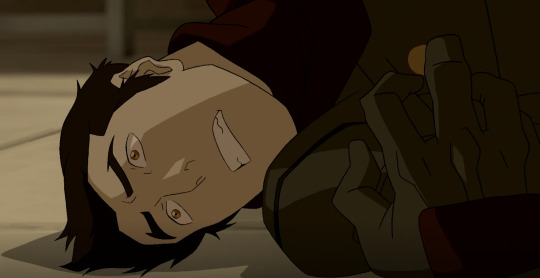
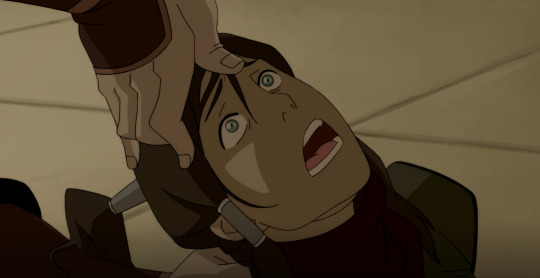
Without a doubt, Mako and Korra had the most compelling scenes of the entire episode (and not because they were fighting Noatak).
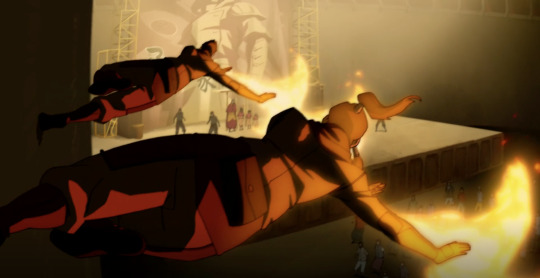
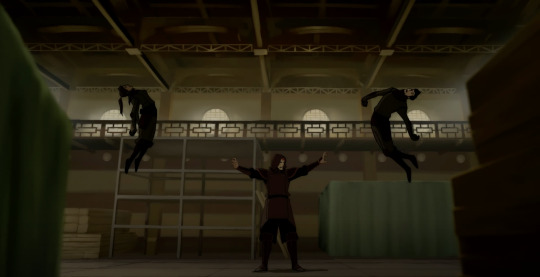

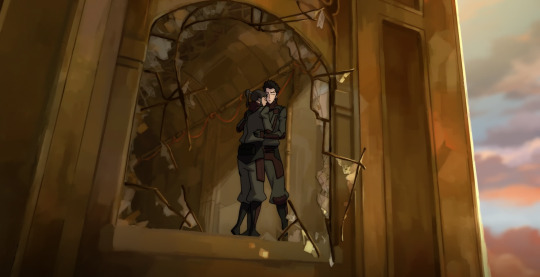
Canon couple or not, these two make a great team. They obviously care about each other, but they’re fiercely protective of one another as well, and that’s what makes their chemistry so palpable.
Although I wasn’t over the moon about dropping the love bombs, even I recognize how heartwarming their moments were.
Take, for example, the penultimate scene of the finale:
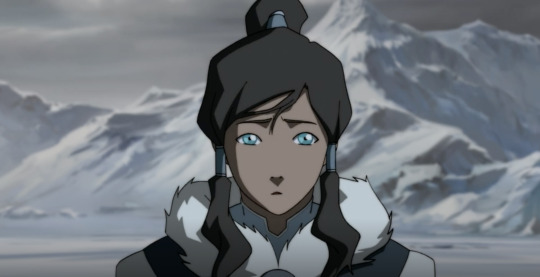
Recap: Mako tells Korra he loves her, Korra dramatically runs away with Naga, and Tenzin tells Mako they have to be patient with her, which is old people code for “give her some space.”
If you ask me, that’s shitty advice.
In real life, I want someone to go after me, even if I say I want to be alone or I tell people to go away.
Yes, I am that person.
So you best believe my heart SOARED when the boy chased after the girl:
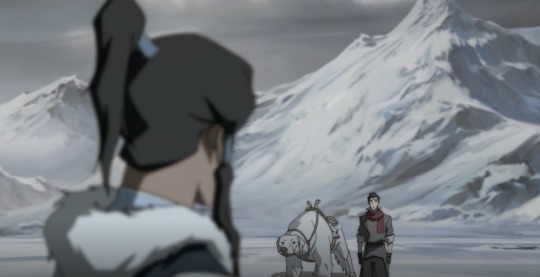
At first, Mako’s shocked.
No surprise there.
He just witnessed Korra in the Avatar State, which means 1) her bending is back and 2) the Avatar State is no joke!! The glowing eyes!! The command of the four elements at your fingertips!! That’s hardcore, bro!!

But then he fondly smiles at her, which I wholeheartedly interpret as “Ah, yes. That’s my girl.”
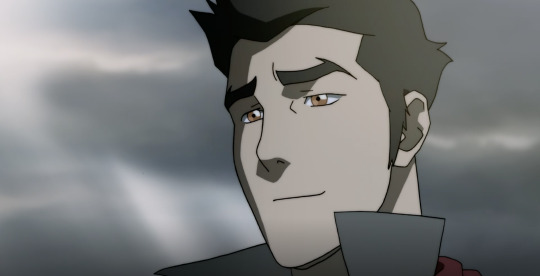
And look at her face!!

These two aren’t endgame, so I’m allowing myself to savor in the swoon.
FYI: If there’s anything you should know about me, it’s that I’m a sucker for cheek caresses.
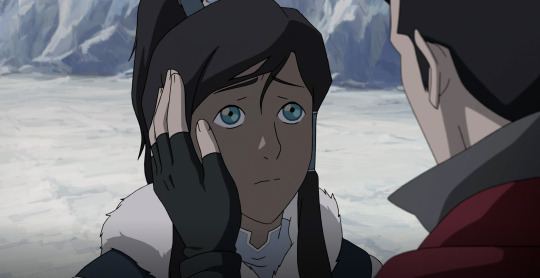
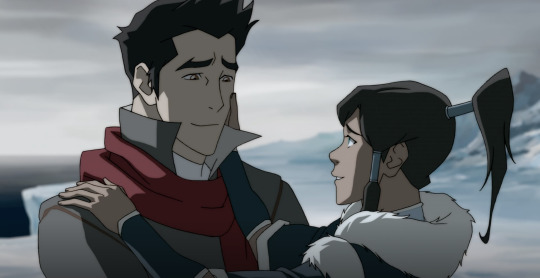
Twirling hugs also make me a lil weak in the knees.
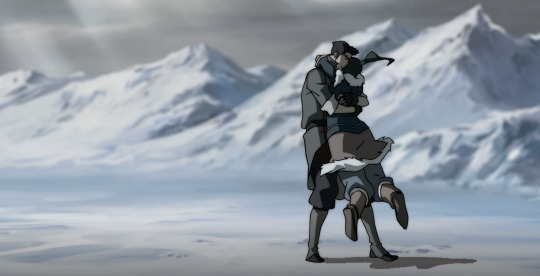
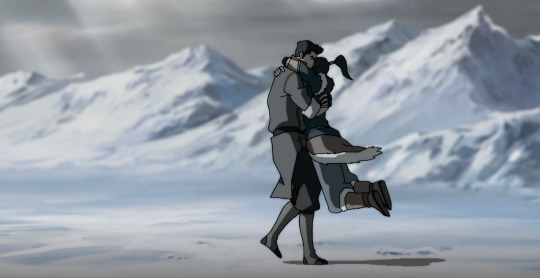
Running to someone and barreling into their arms is just stupid cute.
[Heavy sigh.]
I was really rooting for Asami.
After Chapter 7, I thought we were going to see how Asami was coping with the reveal of her father’s conspiring nature. Instead, her character seemed to revolve more around the love triangle (or whatever shape you want to call the ridiculous Asami x Mako x Korra situation). When Asami does mention her father, it’s only a sparse comment every other episode or so.
Thus, the showdown between father and daughter lacks an emotional weight, and it’s partly because we haven’t explored enough of their relationship to truly feel for these characters.
That isn’t to say their sequence doesn’t have powerful moments.
I just want to take a moment to holla at ma boy @Jeremy Zuckerman, sole music composer.
Your music is always stunning, but the accompanying track in Asami and Hiroshi’s showdown (plus the music in the boat scene and everything in the third act) is what carries the entire segment.
Your melodies tugged at my heartstrings in ways the story couldn’t.
Their final fight, for instance:
Asami is so caught up in the battle---defending herself against her father, no less---that you think she might actually do it, she might actually hurt him.
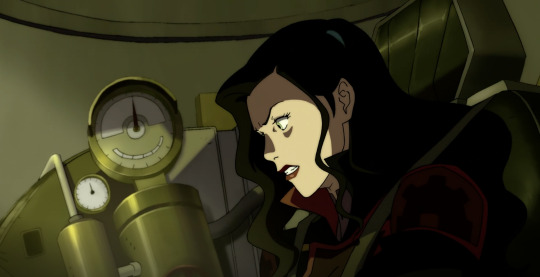
But then he’s looking at her like this,
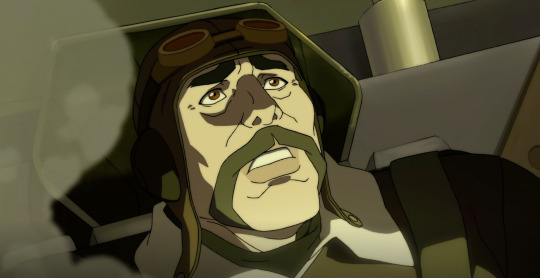
and she starts to hesitate (this is her father after all),
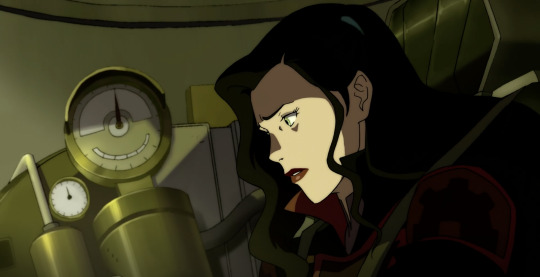
which is the exact moment Hiroshi strikes.
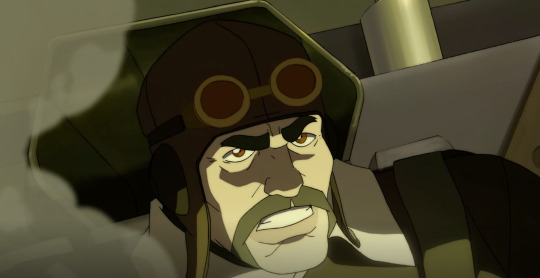
In the end, Asami captures her father, but not without remorse: “You really are a horrible father.”
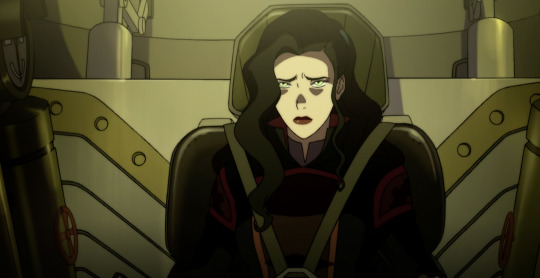
Dear Creators,
Please give your characters the emotional depth they deserve and explore the nuances of their relationships.
Trust me: they can lift the weight of their stories just fine.

I am unbelievably disappointed in Noatak’s arc.
I just---
I mean---
How?
How are you going to build the foundation of a character on a lie?
How are you going to develop that character’s arc for ten episodes, then discredit almost everything with deceit??
How are you going to completely undermine your character like that???
And to add insult to injury, Noatak keeps lying, going so far as to reveal a fake, painted scar:
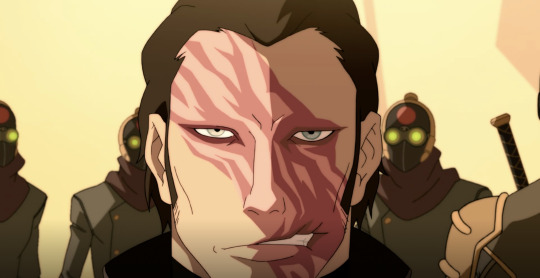
Here’s the thing: Zuko is my world.
Of all the characters from Avatar: The Last Airbender, I found pieces of myself in his story the most. Scars, then, are sore subjects for me; sometimes, I feel like I’m as sensitive about his scar as he was.
Yes, I jumped in my seat upon first seeing Noatak’s “scar,” but make no mistake---I’d rip that lie off his face in a heartbeat.
Undermining your character with lies is bad enough, but this shit felt like mockery, and while I’m certain that wasn’t the creators’ intents, I’m taking it personally anyway.
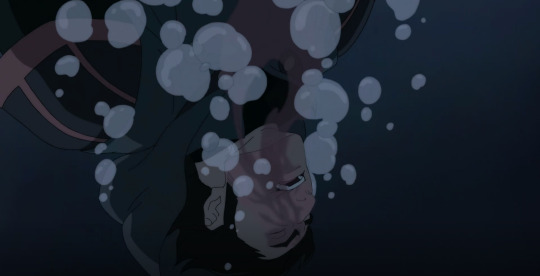

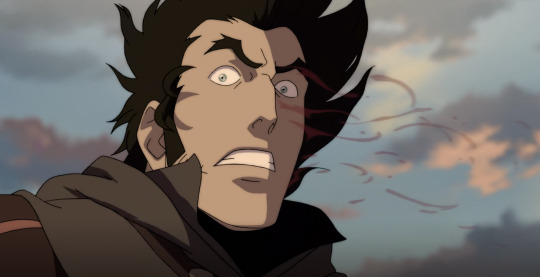
However, attention should be paid to Noatak’s last scene:
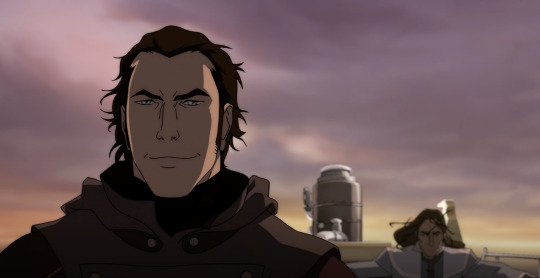
Again, the music is so beautifully somber, but the dialogue here is probably some of the episode’s best.
From Noatak’s “I had almost forgotten the sound of my own name,” to Tarrlok’s "It will be just like the good old days.”
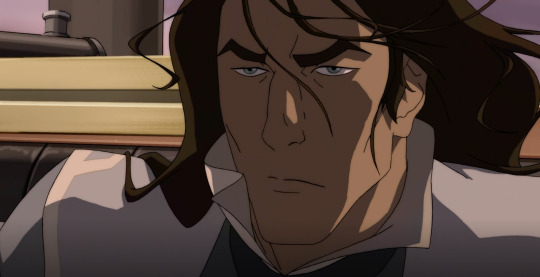
From the tear that rolls down Noatak’s cheek,

to Tarrlok's decision to sacrifice them both.
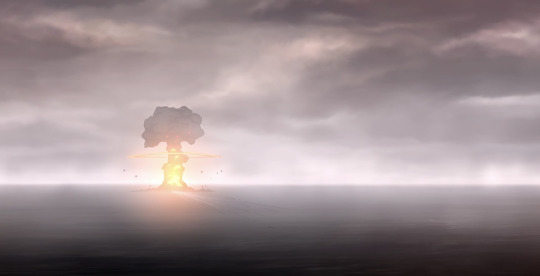
It doesn’t make up for butchering Noatak’s arc, but this was, quite simply, a beautiful ending to a sad story.
Dear Creators,
Please don’t make the same mistake twice.
You compromised the integrity of your character the moment you sacrificed a fleshed out plot for woaw!shock factor.
Villain or not, he deserved better.

Also, I CAN’T BELIEVE YOU.
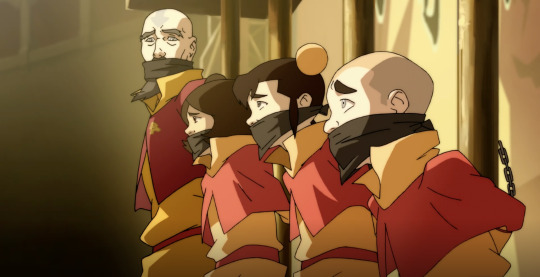
It was at this moment that I wanted to jump into the screen and rescue Tenzin and his beautiful children myself.
LOOK AT THEIR FACES.
I WAS SO MAD.
LIKE:
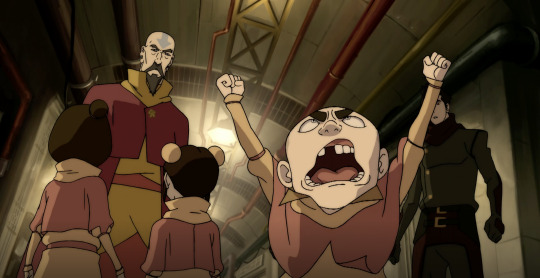
HOW COULD YOU.
It should be said: I loved Korra in this episode.
I mean, she was pretty daft to think that hiding under a table would keep her safe from a bloodbender. A bloodbender (a psychic one at that) can feel your blood, Korra, of course he knows you’re under there.
So just for that:
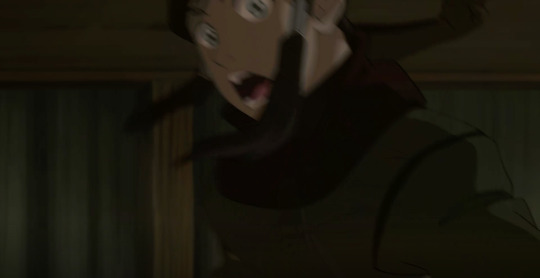
Yeah, don’t you look all silly and fuzzy.
Aside from this idiotic little slip, she was pretty badass, unlocking her airbending and fighting against Noatak’s bloodbending:

What a crappy screenshot of her airbending, haha. Would you believe me if I said this was genuinely the best I could do?
And unlike Asami and her father, I actually felt for Korra. I was devastated when Katara couldn’t repair her severed connection to the other three elements.
Though I wonder if I felt more for Korra because she acted just as I would. That is, she’s clearly distraught over losing her bending, but she wants to spare her friends and family the trouble of making a scene:
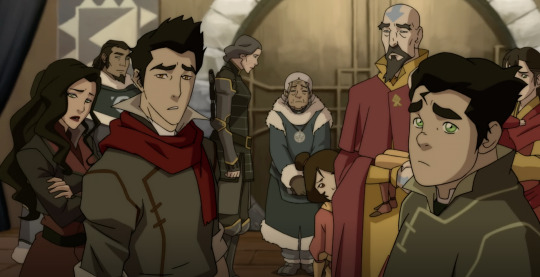
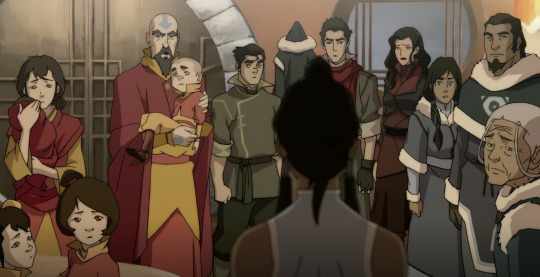
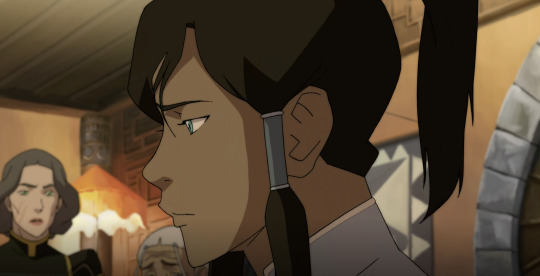
So she waits until she’s alone to let it all go:
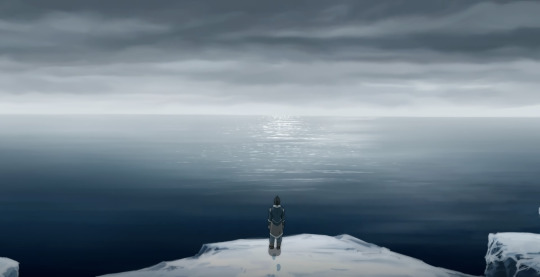
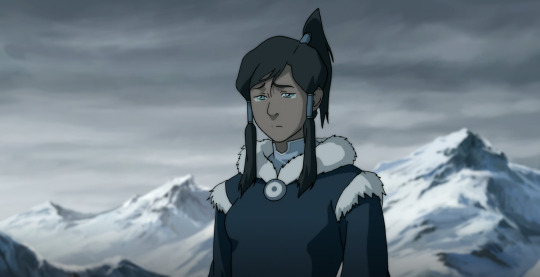

:’-(
As I said, I loved and felt for Korra in the finale, and I don’t have a problem with her...
I have a problem with the writing.
Korra’s airbending was very badass, but I completely forgot about her airbending struggles.
The first four episodes show Korra’s conflict with the element (i.e., it’s literally the plot line of Chapter 2). If anything, these episodes have small moments that remind us of Korra’s airbending training---practicing in the temple’s courtyard or doing exercises with the kids, to name a few examples.
Then, in Chapter 8, Tarrlok insults her with the “half-baked Avatar” comment, snidely remarking on her less than satisfactory airbending. It’s in this same episode that Korra reminds Tenzin---and the audience---that she’s never been able to connect with her spiritual side. (More on this later!)
And... that’s it.
After the eighth episode, she’s kidnapped by Tarrlok, who reveals himself as a bloodbender; she’s rescued but then Amon and Hiroshi attack Republic City, separating Korra and the teens from Tenzin, his family, and Lin; Korra decides to take Amon on her own (but not really because Mako decides to tag along) and the two of them bump into Tarrlok, who reveals that Amon is actually his long-lost, waterbending, psychic bloodbending brother, Noatak.
It’s not necessarily a bad thing. If the creators were prioritizing awe! and shock! and woaw!, then unlocking Korra’s airbending this way definitely did the job. But it felt a little too... convenient? Plus, there was no explanation for why her airbending worked when it did.
I mean, saving Mako obviously had something to do with it, and they didn’t have time to get into the details because, duh, they were trying to restore Korra’s bending.
Still, the audience shouldn’t have to interpret everything.
(Or perhaps I’m just being petty, lol.)
For a book titled after the element, I guess I just expected more.
Ultimately, I wish we saw Korra practicing more airbending; I wish we got an explanation for how and why she airbended when she did; I wish her success in unlocking her final element had not been overshadowed by the loss of her water-, earth-, and firebending.
Which brings me here, to this special moment:
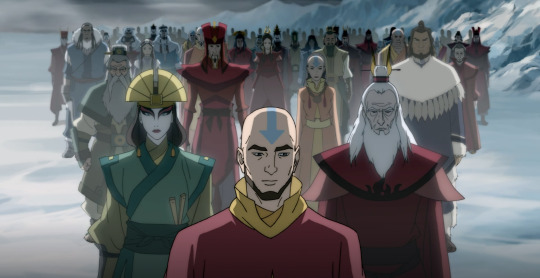
I cried.

100%.
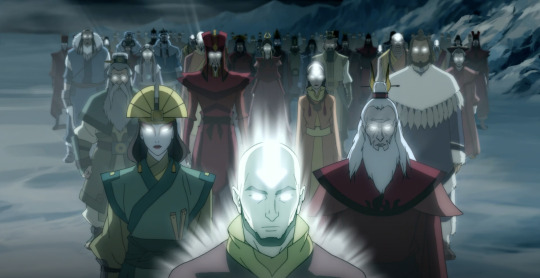
And the gentle, yet all too familiar Avatar theme playing in the background? Yeah, I was a puddle of tears.
However, as nostalgic as this was, I wasn’t too pleased at how quickly Korra’s bending was restored because it felt like the creators were taking shortcuts again.
For the record, I like that Noatak took Korra’s bending away (though I would have liked a more epic battle?), as it debunked the whole “the Avatar is invincible” concept. But, really? A quick touch of Aang’s fingers and her bending is restored, just like that?
Maybe it’s just me, but I would’ve loved to see Korra struggling to get her bending back. Perhaps we could’ve seen her retraining and relearning the other elements, which is something I still feel we were robbed of.
Furthermore, as much as I enjoyed seeing Aang and all the former Avatar reincarnations, I didn’t like that this was also the moment Korra connected with her spiritual side. Similar to her airbending moment, I forgot about her spiritual struggles; the issue is last mentioned in Chapter 8 and, before that, all the way back in Chapter 1. But, honestly, I think the ease and convenience of this moment lends to the problematic pacing of Book I as a whole.
Dear Creators,
While I thank you for restoring Korra and Lin’s bending, please don’t resort to convenient endings. I recognize that you only had twelve episodes, but please, no more shortcuts.
Your story will suffer.
Your characters will suffer, too.
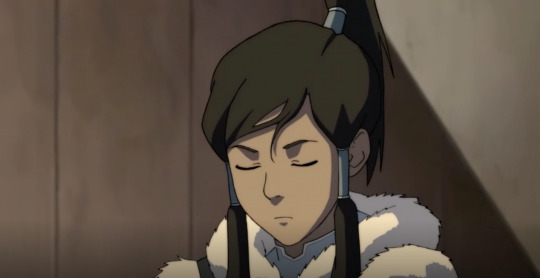
p.s., I’m sorry for being so mean to you. I have a lot of feelings, is all.
Cheers to Book II, though!
Parting Thoughts
Before sitting down to write the finale’s review, I took a two-week break.
In that time, I rewatched (and re-rewatched) the entire first book.
I even had time to indulge in the fifth season of The Great British Baking Show.
Shameless Plug:
I absolutely recommend this charming baking competition.
You learn quite a lot about the science and precision of baking, endure (but also adore) countless baking puns, and witness what true competition looks like. That is, genuine camaraderie, rooting for your fellow bakers to succeed, and sometimes, lending them a hand if they’re pressed for time.
Warning: do not watch late at night. You will reach for a baguette.
And yet, I still feel meh about Book I.
The season has its share of success: the music is as impeccable as ever and the technological and industrial components of the Avatar-Korra universe are developing and expanding nicely.
However, it will always come down to the story, and the writing just wasn’t up to par.
Truthfully, the real triumphs are the characters, who---after only twelve episodes---have built a home for themselves in my heart:
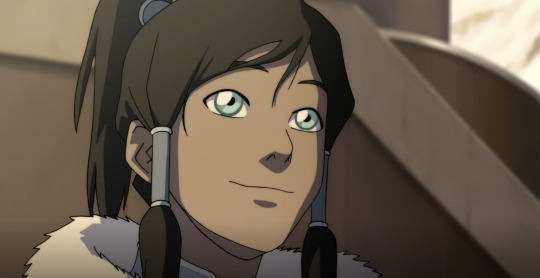

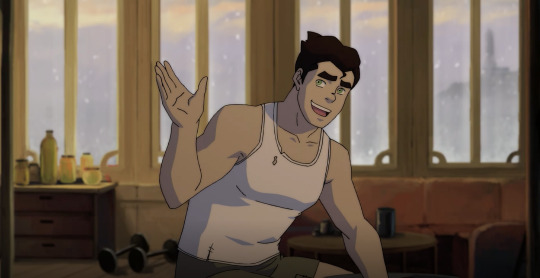
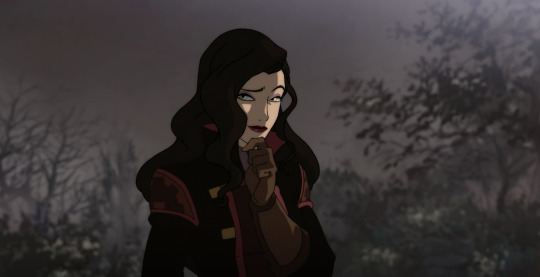
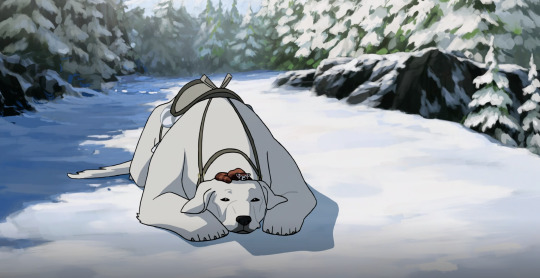
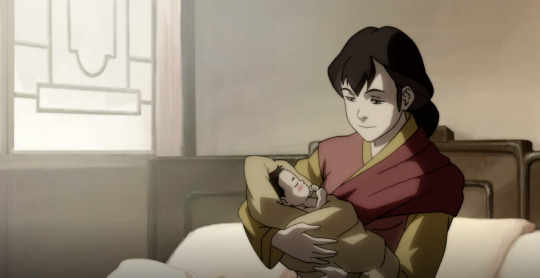


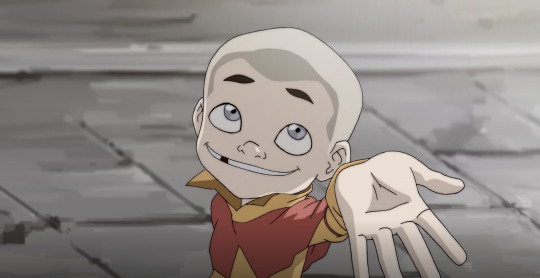
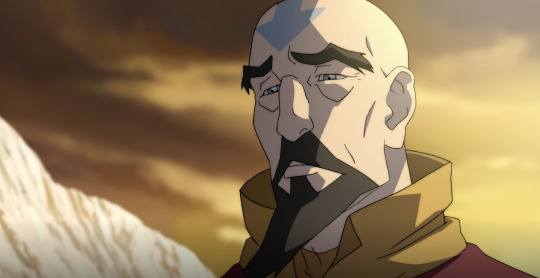
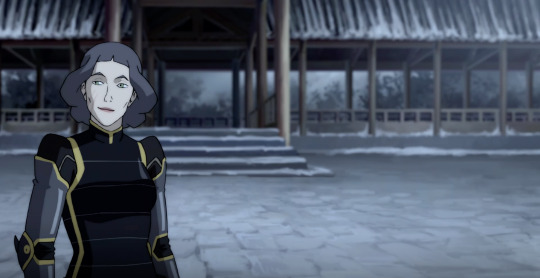
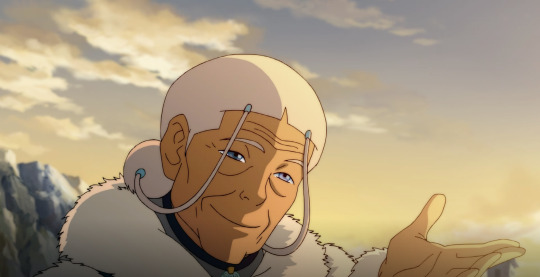
Although, our bright, blue-eyed Avatar still has much to learn.
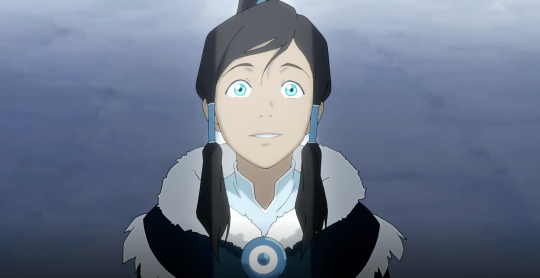
(i.e., how to stop being an impatient little dumdum)

But take heart...
Her story’s only just begun.

From Beginning to End:
“Thanks for looking out for me, Aang.”

credits
1 note
·
View note
Note
I hate to be an asshole, but I see this a lot and I'd like your take because while we have differing opinions on some things, your metas are spot on (and I binged half your stories last weekend, oops) and I know you'll be straight up with me on this. What "chemistry" between Zuko and Katara? I keep seeing that and not getting it? The chemistry when he roughed up her grandmother and threatened her village? The chemistry when he tied her to a tree and violated her boundaries? (1/3)
The chemistry when he hired a trained assassin to stalk her good friend and if collateral damage happened, oopsie? The chemistry when he stabbed her in the back after she was nice to him in the crystal catacombs? The chemistry when he demanded that she accept him? Or the chemistry when he showed he didn’t know her at all? The chemistry when both of them were grossed out being thought a couple? Or is it the chemistry when he saved her and Katara couldn’t wait to kiss another guy? (2/3)
I dislike r/eylo from Star Wars fandom. I think it sends the wrong message. But as much as I hate it, there was chemistry there from the first. Rey is attracted to him and Kylo is attracted to her. They don’t want to be, but they are and it plays out in the next two movies. There was none of that in ATLA and I can understand z/ks saying it but other people? What am I missing? Where am I not looking? I’m not even that huge on Katara/Aang but Zuko/Katara chemistry where? (3/3)
Obligatory disclaimer: this is my personal response to anon’s questions and my personal thoughts on Zvtara’s chemistry. I’m not going to put this into the main tags - much less the Zvtara tag! - because while I believe this is a genuine question, I don’t doubt there’s at least one person out there who will misconstrue it as “hate” because the A:TLA fandom is, uh, aggressive in its ship wars lol. However, if I have any Zvtara shippers following me, I encourage you to reblog this post with your own thoughts! Please refrain from sending your commentary on anon unless you’re going to be friendly about it, lol; I like to keep my blog positive and welcoming! Thank you :)
Firstly, I am EXTREMELY flattered that you enjoy my metas so much and binged half my fics!! I was grinning so gleefully as I read that part of your asks,, y’all are too sweet to me. 💛
Okay. Moving on.
So, the main question here seems to be this: What chemistry exists between Zuko and Katara in A:TLA?
Short answer? None, in my opinion.
Longer answer? For all the reasons you outline in your asks, I do not perceive any romantic chemistry between Zuko and Katara within the series run of A:TLA. Note the qualifiers: “romantic” and “within the series run.” I’ll try to break down what I mean!
“no romantic chemistry”
For one, a romantic interest with anyone in the Gaang would have undermined Zuko’s entire redemption arc, full stop. Yes, I mean anyone. For Zuko to have joined the Gaang because of romantic interest* would have been… counterproductive. Zuko joined the Gaang because he realized - to put it very simply - that the Fire Nation was wrong. He realized how he’d been indoctrinated since birth. He realized that he could help the Avatar (instead of trying to, uh, kill him lmao) by teaching him firebending. He realized he could help Aang defeat the Fire Lord and bring peace to the four nations. Zuko realized he could help end the war. He could help break the cycles of violence and abuse that had in part made his own life so miserable. For him to join the Gaang because of romantic interest? Completely takes away from all of that. A key theme of A:TLA is dismantling imperialist power, propaganda, rhetoric, etc. Zuko’s decision to fight against Fire Nation imperialism is crucial to his redemption. He could not have been redeemed without making that choice. Thus, if Zuko had joined the Gaang because of romantic interest, it would have been completely counteractive to his redemption.
(*That is, the relatively popular [? I think?] implication that Zuko and Katara’s moment in “The Crossroads of Destiny” was romantic-coded and thus Zuko should have joined the Gaang at the end of Book 2 because he had romantic interest in Katara and she in him. I genuinely am clueless how people interpret that moment as romantic - like to me it’s honestly heartbreaking! Katara offers Zuko tentative sympathy only for him to stab her in the back minutes later - so if someone would like to share some thoughts, please feel free to do so!!)
On a similar note, for Zuko to take the lightning for Katara at the end of the series because of romantic interest would also undermine his redemption arc. Please note: this does not mean Zvtara shippers cannot interpret the Agni Kai as being romantic-coded. Of course they can! That’s what fanon is for! Transformative works! But in terms of canon, Zuko did not try (and fail, rip) to redirect Azula’s lightning because he was romantically interested in Katara. (I mean, in terms of canon, Zuko and Katara were both romantically interested in other people, too, so… Moot point, lol? But I digress.)
Zuko taking the lightning is about him learning to earn forgiveness and accept unconditional love from his family (both Iroh and the Gaang). It is a selfless act, and it directly parallels Zuko’s selfish act in “The Crossroads of Destiny” to stand silently while Azula strikes Aang with lightning, thus becoming complicit in Aang’s death. The point of his “sacrifice” is that Zuko would have taken the lightning for anyone (and don’t get me wrong - the moment is doubly powerful with Katara, as she’s a primary protagonist!). Zuko did not attempt but fail to redirect the lightning because it was Katara he was protecting; he took it because it was the right thing to do. Zuko has learned to differentiate between “right and wrong” on his own. To at last put others before himself. To make his decision about romantic interest? To make Zuko’s most selfless act in the series (not to mention one of his only 100% selfless acts!) about out-of-the-blue “romantic love”? That not only lessens the impact of his decision, but it is also reductive to Zuko’s entire character and arc. There’s no romantic chemistry there.
Again, of course, fanon exists for purposes such as interpreting Zuko’s failed misdirection of the lightning to protect Katara as romantic. Go wild!! I’m talking strictly about canon.
So that pretty much summarizes why romantic interest with anyone in the Gaang would have been detrimental to Zuko’s redemption, hence why Zuko doesn’t have any canon romantic chemistry in the Gaang. It just ain’t there! It would have screwed over his arc! And again, because of all the reasons you outline, I cannot comfortably interpret any romantic chemistry between Zuko and Katara within the series run of A:TLA. Personally, romantic Zvtara would have been too sudden, too unexpected, and too… well, as I said: uncomfortable. Why would Katara have romantic interest in a guy who’d hurt her so many times? Who she’d only just forgiven? Why would Zuko have romantic interest in Katara, a girl he barely knew for most of the series? Especially when he already had feelings for a childhood friend? I, personally, just don’t get it.
But. You know what Zuko and Katara do have in canon?
A phenomenal platonic bond.
It develops very late, admittedly; Katara has only forgiven Zuko for the last five episodes of the series (5 out of 61… Katara was only on good terms with Zuko for 8% of the series, lmao). But Zuko and Katara are very, very similar personality-wise, so it follows that (eventually) they’d be great friends! Yeah, Zuko acts like an entitled dick for a good portion of “The Southern Raiders” lmao, but he ultimately respects Katara’s decision to spare Yon Rha (love that scene so much 🤧). Katara recognizes that Zuko is trying his best (if sometimes falling short) to redeem himself and earn the Gaang’s trust, and she also understands how - while she is completely justified in her anger! - holding that hatred close to her chest isn’t good for her. So she offers him a third chance (and honestly, Zuko should be forever grateful for that lmao!).
So what can a strong platonic bond lead to? Well, if it’s in your taste, a romantic relationship!
“within the series run”
As aforementioned, I don’t see any romantic chemistry between Zuko and Katara within the series run of A:TLA. I think Zuko has hurt Katara in too many ways - and again, she has only just forgiven him by the end of the show - for there to realistically have been any blossoming romance between them. I think romantic interest for anyone in the Gaang would undermine Zuko’s redemption. I also think M@iko and K@taang are well-implemented romances into A:TLA, so romantic Zvtara would not have fit into the narrative. (Doesn’t mean someone has to ship them!! I just mean they made logical sense and had narrative purpose within canon. That’s all.) But again, Zuko and Katara have a great platonic bond. So while I don’t see romance within the series run, I can understand why people might be attracted to Zvtara in post-canon!
Post-A:TLA (disregarding LOK, which I haven’t even seen lol) Zvtara has some solid potential. I’m personally intrigued by the idea of how they’d navigate their relationship amidst all the politics! Basically, any relationship with a strong platonic bond can have potential for “more.” That’s why people ship T@ang, that’s why people ship Zvkaang, Zvkka, M@ilee, etc. So while Zvtara may not have romantic chemistry within the show - in my opinion! - they’ve got one of my favorite platonic bonds, so I can totally get people wanting to explore that bond in post-A:TLA and possibly translating it to romance.
So for some people, then, it might be less about “chemistry” in A:TLA itself, but more how their relationship could grow and change after the end of the series!
Quick sidebar: I mentioned that while I do not interpret the final Agni Kai as romantic, I’m fine when other people do. It’s fanon! Ain’t no big thing! But also, Katara has forgiven Zuko by that point. I, personally, am not comfortable with reading any of Zuko and Katara’s TSR-and-earlier interactions as romantic because of the imbalanced power dynamic. Example: I don’t think Zuko tying Katara to a tree and manipulating her with her mother’s necklace was romantic, and I don’t like the resulting implications when people do treat it as such. Zuko was still so indoctrinated by Fire Nation propaganda… Yeah, from Book 1 to about halfway through Book 3, I personally don’t feel comfortable shipping Zuko with anyone outside of the Fire Nation. Pre-redemption Zuko was not the most fun person to be around if you were non-Fire Nation.
But as I’ve said, these are all just my opinions! Again, if I have any Zvtara shippers following me, please feel free to reblog with your own thoughts! I would love to know where the idea comes from that Zvtara had chemistry within A:TLA, since I personally don’t see any romantic vibes (though platonic chemistry, of course, abounds.)
(For the record, I don’t know anything about Star Wars, which is why I haven’t brought up R.eylo, lol.)
TL;DR - To me, there isn’t any canon romantic chemistry for Zvtara. Narratively, I think it would undermine Zuko’s arc. Logically, because of how Zuko treated Katara for 92% of the series, I personally cannot interpret any of their interactions as romantic. But their platonic bond? Beautiful!! Thus, if people want to explore post-A:TLA, fanon Zvtara, I am all for it.
56 notes
·
View notes
Text
The Waterbender and the Firelord: Katara and Zuko Parallels
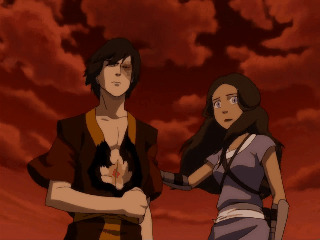
Avatar: The Last Airbender has three central characters: Aang, Zuko, and Katara. These three characters share a lot of parallels and connections, and we see each of them interact, develop, and grow during the course of the series.
With that said, Katara and Zuko are two very different, but at the same time very similar characters. And, just like with Aang and Zuko in my previous meta, we can look at the parallels between them to see how exactly the thematic parallels between these two characters play out. And, just like last time, I won’t look all the parallels (like this one), since not all the parallels are of thematic significance but, I will look at the really important ones that help tie them together.
That said, I will be doing something a little different this time around. While I’ll mostly be focusing on Katara and Zuko, I’ll bring in a couple of the parallels between Aang and Zuko as well since Katara kind of helps bridge these two characters, and because so much of the Katara/Zuko parallels are parallels between the narrative three and actually help to better develop both Katara and Zuko’s respective story arcs. Thus, it is my hope that. by the end of the meta, both the readers of this meta and myself will have a better understanding of just how this dynamic works.
So, without further ado, let’s begin!
Just like with Aang and Zuko. we have similarities between Katara and Zuko that have to do with their personalities, as well as their upbringing. In addition to this, a lot of the big thematic parallels between Katara and Zuko occur because of these personality traits--they’re determined, they have a strict sense of morality and judgement, etc. Therefore, just like how Aang can be seen as a version of Zuko who was not groomed by an imperialist society, so too can Katara be viewed as a possible version of Zuko--one who always stayed on the right path, and one who didn’t have moral dilemmas the way Zuko did.
Personality
In terms of personality. Zuko and Katara are very similar, with Katara even becoming a foil for Zuko in “The Southern Raiders.”
Both Katara and Zuko are fiercely determined to the point of stubbornness. They can also get very angry when provoked. Usually, these situations end with either Aang or Iroh trying to calm everyone down but, they don’t always succeed. Sometimes, these outbursts can even end with them saying hurtful things that they might not have meant to say, or would later regret.
Similarly, Zuko and Katara both adopt spirit-inspired secret identities, which ties into their stubborn determination in that it’s a strong motivator for their actions. However, what distinguishes them is the reason behind these identities.
Katara genuinely wanted to help people, and used the “Painted Lady” persona as a means to hide her identity as she did so. This ensured that the Gaang wouldn’t find out about her activities, and also made sure that the villagers in the episode of the same name didn’t find out who or what she really was.
In contrast, Zuko donned the mask of the “Blue Spirit” as a way to hide his identity in order to fulfill his goal of capturing Aang in Book 1, and later to escape poverty by becoming a thief in Book 2.
We also get a nice little parallel where Katara and Zuko have to unmask themselves for Iroh and Aang. Again, the reasons behind these two unmaskings are different, but the parallel is still there.
Morality
Another thing that Katara and Zuko have in common is their strong sense of judgement and morality. Here, we see two people that are inherently good and who, despite the cruel world around them, continue to do good--even if one of them was misguided for two and a half seasons.
I’ve mentioned in the past that one of the things that separates the Avatar protagonists from the Avatar antagonists is that the protagonistsare unable to hurtl, and kill innocents. This is true not just for the narrative three but for the other members of the Gaang as well.
Even so, this is still a strong theme for Katara and Zuko. Katara refuses to take up Hama’s fight because she sees what Hama is doing as wrong. Likewise, Zuko thought that needlessly sacrificing an entire division of soldiers was morally abhorrent.
And again, here we have two staunchly determined individuals who can be motivated by anger, rage, and a need for revenge. And yet, just like with all our protagonists it doesn’t matter how many times Katara tells herself “I’m going to kill Yon Rha,” or how many times Zuko says “today I’m gong to kill Admiral Zhao” because deep down they are inherently good and have a strong moral compass that doesn’t allow them to take such drastic actions. They simply can’t, and the narrative is totally fine with that.
Furthermore, it’s this determination and unwillingness to abandon their ethical beliefs that ultimately lets them prevail against their opponents (we even get a really nice camera framing parallel between Katara and Zuko in the process, as well as another parallel which shows Katara and Zuko catching their opponents off guard).
With that in mind, one of arcs that Zuko goes through has to do with learning that mercy and forgiveness aren’t childish concepts. And, throughout the series, we see Zuko struggling with what he knows is right, and what his nation sees as right. Katara ties into this arc because she, alongside Aang and Iroh, show Zuko that mercy and forgiveness aren’t in fact childish concepts, and that moving on and forgiveness aren’t mutually exclusive concepts.
Family
Now, let’s talk about Katara and Zuko’s respective family dynamics.
Just like with Aang and Zuko, we see a stark contrast between Katara and Zuko’s upbringing. Katara grew up in a loving family, with her parents supporting and loving both their children. In contrast, Zuko grew up in an abusive household with his father pitting himself against his sister. This could be due to the cultural difference between the Water Tribe which prioritized unity and community, and the Fire Nation which prioritized strength and power.
There is also another parallel between the overall family dynamics of Katara’s family and Zuko’s family with Hakoda and Ozai being the fathers that haven’t seen their sons in many years, Ursa and Kya sharing the role of the absentee mother, Azula ad Katara as bending prodigies, and Sokka and Zuko as older brothers who feel like they need to prove themselves to their fathers.
Loss
Speaking of mothers, let’s talk about one of the big themes which, as I’ve mentioned before, is the one theme that ties all three of our central characters together the most: loss. It motivates everyone. It’s what makes it hard for Aang to let go of Katara, and makes him so upset when Appa is kidnapped. It’s what makes Katara so determined to succeed in the war against the Fire Nation, and so angry at Zuko. It’s also what makes Zuko both want to restore his father’s love, and eventually defect.
Loss is everywhere.
So, of course, Katara and Zuko parallel each other in that they both lost their mothers to the Fire Nation at a relatively young age. Ursa was banished as part of a deal that would spare Zuko’s life, and Kya sacrificed herself to spare Katara’s life.
These two events affected who Katara and Zuko became when they grew older. For Katara, it meant becoming fiercely protective, and doing everything in her power to protect the ones she loved and cared about. This is the driving force that makes her protect and vouch for all the people she has saved or tried to save from the people in “Imprisoned” and “The Painted Lady” to Aang, Jet, and Zuko in seasons 2 and 3. In the show’s continuity it’s the parallels between Aang and Kya that really helps push Katara to continue to protect the ones she loves, and consequently to view Zuko as “the face of the enemy,” up to the latter half of Book 3. The consequence of this parallel is that Katara eventually connects her losing her mother to Zuko himself. This eventually culminates with Katara saving Zuko’s life in the finale after he risked his life to save her from Azula in a moment that parallels what happened to her mother.
Zuko’s story is a little different. He lost three parental figures in the course of the series, and losing these parental figures affected him in different ways.
First, he lost his father’s love, the one thing he he wanted the most. This is what motivates him to go after Aang, and even to betray his uncle. It’s a destructive driving force that blinded him to his true calling.
We won’t talk too much about Lu Ten and Iroh, but just know that, like Ursa, Zuko’s losing Lu Ten ties into Zuko’s empathy arc and helps him connect with the people he meets in the Earth Kingdom. In a similar vein, the Kya-Ursa connection is one of the factors that lets Zuko empathize with the people whom his nation views as enemies as well. Iroh also plays into the mix by becoming Zuko’s motivator after he realizes he doesn’t need Ozai’s love. Here, “I want to make Dad proud” transforms into “I want to make Uncle proud.
That said, as mentioned before, Ursa’s influence on Zuko is twofold. On the one hand, it’s what ultimately makes Zuko able to stay true himself by leaving the Fire Nation. But, before this happened, Ursa’s influence on Zuko played out a little differently, with Zuko’s memories of his mother making him nostalgic for how things used to be before his banishment. At this time, staying true to himself was less about being his own person and freeing himself from Ozai’s influence, and more about fulfilling his role as Ozai’s son and heir and returning home.
Still, the fact remains that as soon as Zuko stopped being blinded by his need to win his father’s approval, his memory of Ursa became a positive motivator, and was the push he needed to join the Gaang
And, speaking of nostalgia, “North and South” does a great job of not only elaborating on Katara’s “protect all the people” arc and giving it a second conclusion, but it also turns what used to be only a parallel between Aang and Zuko into one that features all three of our central characters.
This parallel, connects Zuko, Katara, and Aang together even more by showing us just how much they feel they’ve lost, and just how much they want things to return to normal. With Katara and Zuko especially, it demonstrates why their loss is such a potent motivator. It’s what helps them make it through the day, and want to push themselves against the odds. These are characters who lost something that affected them deeply, who want so hard for everything to return to normal, and yet all they can do is try to cope and try to somehow move on from what happened to them.
Loss and Foils
This brings us to our final group of parallels between Katara and Zuko.
I mentioned already that loss is a powerful motivator for our main characters, and makes them do a lot of the things they do (in fact, a lot of the conversations that Zuko and Katara have focus on loss). I also mentioned the connection between Zuko and Yon Rha, and how this parallel played into Katara’s hatred for Zuko.
In “The southern Raiders,” we see a version of Katara that we’be never seen, a version of Katara that is so blinded by her need for revenge that one can’t help but draw parallels to Zuko in the first season, and how he was blinded and motivated by his need to regain Ozai’s love.
In fact, the show does us one better by doing just that.
The story itself resembles the arc of “The Avatar State.” Azula and Zuko give them an offer which revolves around what Katara and Zuko have both lost--Ozai’s love, and Katara’s mom. They agree. Aang, Sokka, and Iroh warn them not to do it, but Katara and Zuko refuse to back down and end up saying things that they might later regret. Both characters end up going through with their plans, with Aang and Iroh giving their reluctant support. The two plots continue from there with the two episodes’ separate conclusions.
But now for the fun stuff.
In “The Southern Raiders,” Katara becomes a foil for Zuko by showing us just how far Zuko has come. Where most shows might use this kind of parallel to make the antagonist (or anti-hero, in Zuko’s case) sympathetic to the protagonist or vis versa, TSR does it to highlight just how far Zuko has come from his Book 1 beginnings. In addition to this, it kind of helps Katara walk a mile in Zuko’s shoes in a way, maybe showing her where exactly Zuko was coming. Consequently, this all ties right into the “Zuko learns that mercy isn’t stupid” arc which I mentioned earlier.
Thus, we get a parallel with Katara and Zuko saying they do not have a choice. This refers to Katara going after Yon Rha, and to Zuko’s need to capture Aang to restore his father’s love.
We also get another parallel that really helps to drive home just how determined Katara and Zuko were in their respective missions. Here, they are so determined and angry that they refuse to sleep, with Iroh and Zuko having to come along to tell them that they need to rest.
And finally, in what might be the most creepy of the TSR related parallels, Katara’s look when Zuko confronts her at the start of the episode resembles the twisted expression we see on Zuko in “The Waterbending Scroll” when he has Katara tied up, and that’s just downright scary.
Conclusion
In conclusion, Katara and Zuko are two similar individuals who go through some very different but, at the same time, very similar experiences. They are fiercely determined, and like many of our characters, they have lost so much.
Their loss is what makes them grow into the people we see in the show, and it’s their determination, combined with their loss, that makes them clash, interact, and grow as characters.
#katara#zuko#aang#iroh#kya#ursa#atla#commentary#parallel#themes#commentary: atla multiple#commentary: themes#commentary: katara#commentary: zuko#commentary: katara and zuko#parallel: atla multiple#parallel: katara and zuko
186 notes
·
View notes